Storied Leadership: Foundations of Leadership from a Christian Perspective by Brian Jensen & Keith R. Martel (Falls City Press) $18.00
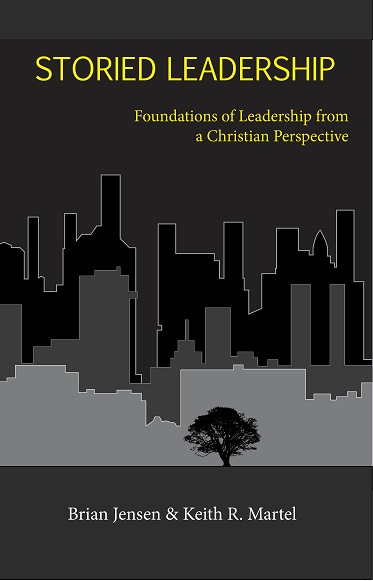
I can’t wait to tell you about this new book on a new indie press, written by two friends of mine. I am a huge fan of this title, but I have to set it up by saying some stuff I want to say about the recent Jubilee conference. These two authors spoke at Jubilee 2015, so, well, they won’t mind if I ruminate a bit about a key idea or two from that event, and mention some more titles for those that want to explore a bit more deeply.
As you will see, I’m going to suggest that this book is connected to all of this and in a way is a watershed, indicative of a new generation of scholars and practitioners building on the shoulders of “visions of vocation” they inherited from CCO and Jubilee, and their respective influences.
I can hardly believe that the CCO’s big Jubilee conference at which we had such a large book display was two week ago. Beth and I are still exhausted and exuberant about it all, and still wishing I could help our non-Jubilee friends to more fully appreciate the significance of this lively, catalytic, college ministry event. I want to mention some books — it’s why you read BookNotes, after all — that would be good for any of us, but especially for CCO staff or mature students following up the conference. I hope you saw my last post about Jubilee and that list of books and that limited time offer for some great deals.
You won’t be surprised to be reminded that we think that studying books (especially if done with others) after events of this sort helps carry the vision back home. Retreats, conferences, revivals, seminars, and workshops can inspire us and motivate us to make changes in our daily thinking and living, but we have to take steps to process and apply the new insights and commitments gained at such events. We should all ponder the moral seriousness needed to respond well to the verse in Philippians charging us to “work out our salvation” — which is to say we must somehow embody the implications of our Jubilee vision. Of course we don’t do this out of any sense of legalism or guilt, or to earn God’s love — Christ’s Kingdom is about grace, if it is about anything — but there is a joyful lot to explore, much to learn, and new ways to work for shalom in our time. To a large extent, this is why we opened our bookstore decades ago, trying to help others find resources that will help them ponder and work out the implications of our faith for all of life. Read for the Kingdom we sometimes shout!
And so, I recall with joy the lecture given at the start of Jubilee by Dr. Anthony Bradley, a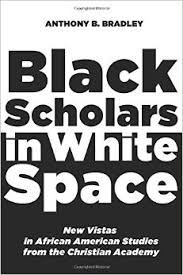 conservative, Reformed theologian and public intellectual who has written widely about racial injustices, black theology, and just released a volume he edited, Black Scholars in White Space: New Vistas in African American Studies from the Christian Academy [Wipf & Stock; $26.00.] that includes pieces by a number of African American scholars and leaders in higher education, including some who were at Jubilee.
conservative, Reformed theologian and public intellectual who has written widely about racial injustices, black theology, and just released a volume he edited, Black Scholars in White Space: New Vistas in African American Studies from the Christian Academy [Wipf & Stock; $26.00.] that includes pieces by a number of African American scholars and leaders in higher education, including some who were at Jubilee.
With his classy bow tie and his Nutella jokes, Dr. Bradley unpacked what it means that we live in a good creation, and that the foundation of any Christian engagement in culture or sense of vocation and calling, is rooted in the conviction that we are made in the image of God, designed to open up the potential, in creative stewardship, of the stuff of life that God embedded into the creation order. From science to art, law to education, from family life to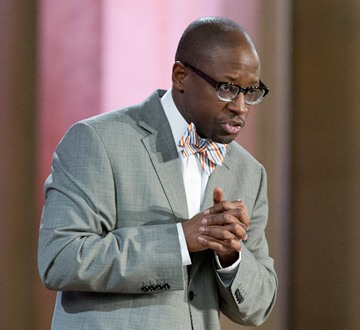 political life, we are to honor God by opening up the potentials of the created order, designed and upheld by the Triune God of the Bible.
political life, we are to honor God by opening up the potentials of the created order, designed and upheld by the Triune God of the Bible.
I hope you know that one of the most important books of the last 30 years that has helped many, many churches, mission groups, nonprofits and educational institutions develop this very notion — and its mark on the Jubilee conference is legendary and palpable, probably second to none other — is Creation Regained: The Biblical Basis for a Reformational Worldview by Al Wolters (Eerdmans; $18.00.) Every year, it seems, Dr. Wolter’s profound chapter on creation (and the equally profound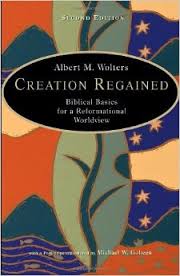 ones on the fall, and redemption) helps frame the conference. His chapter on discerning God’s creational ordinances, in contrast to the distorting and disfiguring misdirection caused by sin, idols and ideologies — he uses the distinctions between “structure” and “direction” which is to say that we must know what is good, ordered by God and creation and what is sinfully off, twisted, not as it is supposed to be — is nothing short of brilliant. It was great to hear Dr. Anthony Bradley preach around these themes, knowing he is familiar with this key text, Creation Regained. That Dr. Bradley is one of the stars of the For the Life of the World DVD didn’t hurt, either. That DVD is so, so solid on this very matter.
ones on the fall, and redemption) helps frame the conference. His chapter on discerning God’s creational ordinances, in contrast to the distorting and disfiguring misdirection caused by sin, idols and ideologies — he uses the distinctions between “structure” and “direction” which is to say that we must know what is good, ordered by God and creation and what is sinfully off, twisted, not as it is supposed to be — is nothing short of brilliant. It was great to hear Dr. Anthony Bradley preach around these themes, knowing he is familiar with this key text, Creation Regained. That Dr. Bradley is one of the stars of the For the Life of the World DVD didn’t hurt, either. That DVD is so, so solid on this very matter.
DEVELOPING A DOCTRINE OF CREATION FOR ALL OF LIFE
For those wanting to explore further this sense that God’s world is ordered in such a way that we can gain real insight into it, studying not just the Word, but the world, allow me to name four serious books. I’ve named these all before, had them at Jubilee, but think they deserve special consideration now.
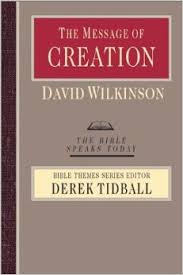 The Bible Speaks Today: The Message of Creation: Encountering the Lord of the Universe David Wilkinson (IVP Academic) $20.00 I trust you know the commentary series “The Bible Speaks Today.” In recent years they have branched out, doing Biblical exegesis, as you would find in a solid, mid-range, useful commentary, in books about a theme. This one, systematically commenting on all the Biblical texts about or alluding to creation, is extraordinarily useful as this Bible scholar traces the theme of creation through the rich tapestry of Scripture and brings it into lively conversation with contemporary concerns. There is even a several week Bible study guide in the back making this ideal for small groups or adult Christian education classes.
The Bible Speaks Today: The Message of Creation: Encountering the Lord of the Universe David Wilkinson (IVP Academic) $20.00 I trust you know the commentary series “The Bible Speaks Today.” In recent years they have branched out, doing Biblical exegesis, as you would find in a solid, mid-range, useful commentary, in books about a theme. This one, systematically commenting on all the Biblical texts about or alluding to creation, is extraordinarily useful as this Bible scholar traces the theme of creation through the rich tapestry of Scripture and brings it into lively conversation with contemporary concerns. There is even a several week Bible study guide in the back making this ideal for small groups or adult Christian education classes.
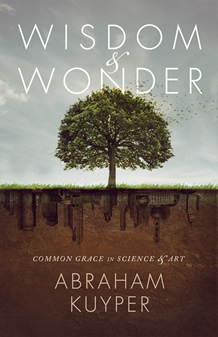 Wisdom and Wonder: Common Grace in Science and Art Abraham Kuyper (Christian’s Library Press) $14.99 The spectacular Saturday night speaker at Jubilee, Jon Tyson, co-wrote (along with Gabe Lyon) an excellent foreword to this recently translated book which was written in Dutch in the early 20th century by the famed Dutch theologian and statesman. Jubilee conference friend and regular speaker there Vincent Bacote wrote the very helpful introduction. This is Kuyper explaining more about common grace and the goodness of creation, especially as a key to understanding a Christian view of work in the sciences and in the arts. To think this rich work was written more than 100 years ago and is still relevant for those who want to dig deep for a sure-footed foundation.
Wisdom and Wonder: Common Grace in Science and Art Abraham Kuyper (Christian’s Library Press) $14.99 The spectacular Saturday night speaker at Jubilee, Jon Tyson, co-wrote (along with Gabe Lyon) an excellent foreword to this recently translated book which was written in Dutch in the early 20th century by the famed Dutch theologian and statesman. Jubilee conference friend and regular speaker there Vincent Bacote wrote the very helpful introduction. This is Kuyper explaining more about common grace and the goodness of creation, especially as a key to understanding a Christian view of work in the sciences and in the arts. To think this rich work was written more than 100 years ago and is still relevant for those who want to dig deep for a sure-footed foundation.
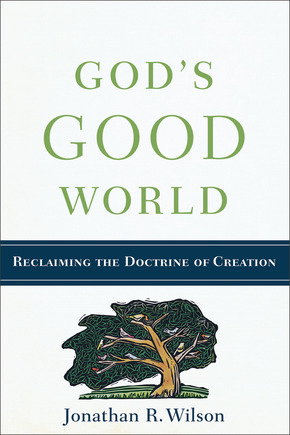 God’s Good World: Reclaiming the Doctrine of Creation Jonathan R. Wilson (Baker Academic) $25.00 I raved and raved about this when it came out in 2013 and continue to think it is one of the more helpful (and important) books of its kind. There are large implications for the robust Biblical view of creation, and this explores many of them. It is serious, but just wonderfully written (and even includes some artistic touches, which are not incidental.)
God’s Good World: Reclaiming the Doctrine of Creation Jonathan R. Wilson (Baker Academic) $25.00 I raved and raved about this when it came out in 2013 and continue to think it is one of the more helpful (and important) books of its kind. There are large implications for the robust Biblical view of creation, and this explores many of them. It is serious, but just wonderfully written (and even includes some artistic touches, which are not incidental.)
This is a profound, yet entertaining, and handsome study — very highly recommended.
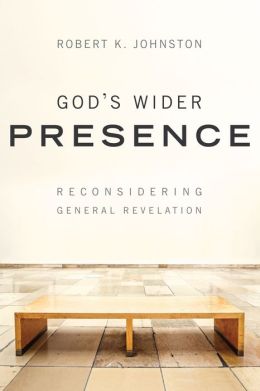 God’s Wider Presence: Reconsidering General Revelation Robert K. Johnston (Baker Academic) $25.99 Here is how the publisher describes this outstanding recent work: ” a senior theologian explores how Christians are to understand the wider revelatory presence of God, mediated outside the church through creation, conscience, and culture.” You should know that Johnston wrote a book years ago on play, and has written three very influential, insightful books on film. He understands that the fruits of human culture — modern cinema, for instance — functions in the world graced by God, and is, in many ways, a good example of the implications of a high doctrine of creation.
God’s Wider Presence: Reconsidering General Revelation Robert K. Johnston (Baker Academic) $25.99 Here is how the publisher describes this outstanding recent work: ” a senior theologian explores how Christians are to understand the wider revelatory presence of God, mediated outside the church through creation, conscience, and culture.” You should know that Johnston wrote a book years ago on play, and has written three very influential, insightful books on film. He understands that the fruits of human culture — modern cinema, for instance — functions in the world graced by God, and is, in many ways, a good example of the implications of a high doctrine of creation.
Okay, you get the picture. This is important stuff, fresh territory that theologians haven’t explored as much as they might in our generation.
(An aside: I talked with Dr. Walter Brueggemann decades ago about why this is. He was talking about “new creation” and I asked why we haven’t had this explored in modern theology much, the implications of that we live in a God-sustained creation which is being recreated in Christ. He said the German theologians, especially, were understandably afraid of legitimizing Nazi ideology, which made a lot of the motherland; blood and soil and the like. Later, in a famous exchange in a scholarly journal, he and Richard Middleton debated whether a robust doctrine of creation is necessarily conservative and counter-revolutionary, as he feared. Richard showed him otherwise, which he happily conceded. You can download Richard’s article from the Harvard Theological Review here and read some of his other indebtedness to Brueggemann here.)
If we are to live out our faith — working out the implications of Christ’s claim over “every square inch” as Kuyper put it, and as the Jubilee conference relentlessly proclaims — we have to not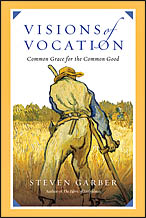 only realize the good news of the gospel, how we are forgiven in Christ and made new by His Spirit, and invited into the new community called the church, but how this narrative of creation/fall/redemption makes sense of our world. As Steve Garber often suggests in his must-read Visions of Vocation: Common Grace for the Common Good this is the world we live in. It is a world of wonder, true, but also a world of ache, and we need the gospel not only to save us from ourselves but because in the Scriptural story, we get the “truest truths of the universe.” If we are to take up our callings in the world with any integrity and longevity, we need these visions, and these visions come from the greatest story every told, which is also the truest.
only realize the good news of the gospel, how we are forgiven in Christ and made new by His Spirit, and invited into the new community called the church, but how this narrative of creation/fall/redemption makes sense of our world. As Steve Garber often suggests in his must-read Visions of Vocation: Common Grace for the Common Good this is the world we live in. It is a world of wonder, true, but also a world of ache, and we need the gospel not only to save us from ourselves but because in the Scriptural story, we get the “truest truths of the universe.” If we are to take up our callings in the world with any integrity and longevity, we need these visions, and these visions come from the greatest story every told, which is also the truest.
NEW CREATION
N.T. Wright has been singing that song lately as well, and his new, very accessible work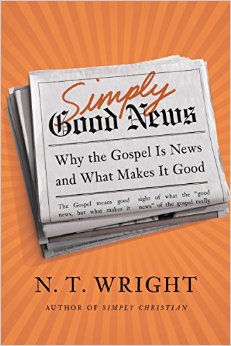 Simply Good News: Why the Gospel Is News and What Makes it Good (HarperOne; $24.99) really does help us see how this narrative of the Kingdom coming simply must shape and direct our lives. After that, if you haven’t, be sure to read his How God Became King (HarperCollins; $24.99) and his much-discussed Surprised by Hope: Rethinking Heaven, the Resurrection, and the Mission of the Church (HarperOne; $24.99) which further develops these same themes.
Simply Good News: Why the Gospel Is News and What Makes it Good (HarperOne; $24.99) really does help us see how this narrative of the Kingdom coming simply must shape and direct our lives. After that, if you haven’t, be sure to read his How God Became King (HarperCollins; $24.99) and his much-discussed Surprised by Hope: Rethinking Heaven, the Resurrection, and the Mission of the Church (HarperOne; $24.99) which further develops these same themes.
Of course, you know that in my last post I celebrated the role of Richard Middleton at Jubilee this year, not only for his early, significant books (The Transforming Vision and Truth is Stranger Than It Used to Be) but for his must-read, incredibly important new book about which he preached, A New Heaven and a New Earth: Reclaiming Biblical Eschatology (Baker Academic; $26.99.) Here is a link to Richard’s 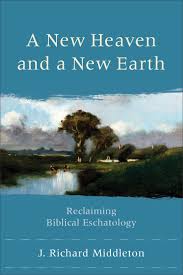 own blog which offers all sorts of good pieces. A while back he mentioned the influence his co-author and friend Brian Walsh has had on Tom Wright’s early thinking. Yes, this game-changing stuff — Walsh & Middleton studying with Al Wolters, writing Transforming Vision as he was writing Creation Regained, influencing N. T. Wright, all while the Jubilee conference was being named and developed in conversation with them and others in their circles back in the mid-70s — and is part of the story we share here at Hearts & Minds. (Oh my, and I just noticed, while getting these links to his Creation to Eschaton blog, just now, that Richard has a post about Beth and I and our Jubilee book display even with some pictures. Now I’m sort of embarrassed, but might as well share it with you. Thanks, Richard, for the encouragement.)
own blog which offers all sorts of good pieces. A while back he mentioned the influence his co-author and friend Brian Walsh has had on Tom Wright’s early thinking. Yes, this game-changing stuff — Walsh & Middleton studying with Al Wolters, writing Transforming Vision as he was writing Creation Regained, influencing N. T. Wright, all while the Jubilee conference was being named and developed in conversation with them and others in their circles back in the mid-70s — and is part of the story we share here at Hearts & Minds. (Oh my, and I just noticed, while getting these links to his Creation to Eschaton blog, just now, that Richard has a post about Beth and I and our Jubilee book display even with some pictures. Now I’m sort of embarrassed, but might as well share it with you. Thanks, Richard, for the encouragement.)
And, friends, I guess you should know that as a BookNotes reader and mail-order customer, it is, like it or not, I suppose, part of your story, now, too.
FROM THE BIG STORY TO VOCATION AND CALL
We must move from this talk about the big story of God, the redemption of all things, and this “wholistic eschatolgy” to how it works out in our main callings in life, our families, our citizenship, our work and our play. For all of us, but certainly for college students and those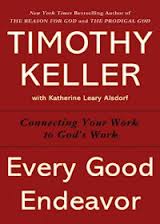 whose callings take them into sophisticated professional careers, the next step in all of this is to take this story of all of life redeemed and do a lot of thinking about what all that means for the particulars of our work lives and the work-places we inhabit. It is essential to know the doctrine of vocation and calling from visionary books like The Call: Finding and Fulfilling the Central Purpose of Your Life by Os Guinness (Nelson; $17.99) to theologically substantive but practical books like Work Matters: Connecting Sunday Faith to Monday Work by Tom Nelson (Crossway; $150.99) or Every Good Endeavor: Connecting Your Work to God’s Work by Timothy Keller (Dutton; $16.00) or others I describe at this large bibliography, here.
whose callings take them into sophisticated professional careers, the next step in all of this is to take this story of all of life redeemed and do a lot of thinking about what all that means for the particulars of our work lives and the work-places we inhabit. It is essential to know the doctrine of vocation and calling from visionary books like The Call: Finding and Fulfilling the Central Purpose of Your Life by Os Guinness (Nelson; $17.99) to theologically substantive but practical books like Work Matters: Connecting Sunday Faith to Monday Work by Tom Nelson (Crossway; $150.99) or Every Good Endeavor: Connecting Your Work to God’s Work by Timothy Keller (Dutton; $16.00) or others I describe at this large bibliography, here.
THINKING CHRISTIANLY
And then, after realizing and being able to articulate a Christian view of vocation and the calling to work (and good luck with that, since most preachers rarely mention such things, although it is changing) it is vital to be willing to “think Christianly” about the details of your particular academic area of study or your specific job. That is why we always (always!) promote to Jubilee students the essential Learning for the Love of God: A Student’s Guide to Academic Faithfulness by Donald Opitz and Derek Melleby (Brazos Press; $14.99.)
to Academic Faithfulness by Donald Opitz and Derek Melleby (Brazos Press; $14.99.)
If you know any church kid who has gone off to college, I sure hope you have sent them this book. Every year, I push it hard at Jubilee, and every year we hear of students who are struck, even surprised, to hear that God cares about their studies, and that there is a particular set of practices that would help them learn to be faithful in their academics.
For a reflection on what I mean by “thinking Christianly” perhaps you could read my column from a few years back where I write about books about politics that I think are exemplary in this effort.
I like the C.S. Lewis quote, “The application of Christian principles, say, to trade unionism and
education, must come from Christian trade unionists and Christian
schoolmasters; just as Christian literature comes from Christian
novelists and dramatists — not from the bench of bishops getting together
and trying to write plays and novels in their spare time.”
The Jubilee conference, just for instance, and our bookstore, are both designed to help the “unionists and educators, novelists and dramatists” who
Lewis mentions, to be inspired to do this work, to think through the
principles that should inform them in their callings. It seems to me that pastors need to read some of this stuff, too,
learning how to inspire the folks in their congregations to be thinking
about the Godly principles that might help be restorative in the world
world and society at large. As I have sometimes lamented, not many
people buy these books, and I wonder if it is because they just have
never heard of the need to do so.
Student or professional, newbie or executive, we must ask: what are the ideas and values, the beliefs and assumptions, about what is true and good in your field or profession? What does it mean to have the mind of God for your occupation? What difference does being a person of faith, inspired by the Biblical narrative, make for the principles and practices that are influential in your field? Do truths learned in Sunday worship spill over to Monday work? (Indeed, can we say, as former Bethlehem Steel executive and Lutheran lay leader William Diehl taught us to say at Jubilee years ago,Thank God It’s Monday”?) Can you name something of the goodness of God’s creation that you see in your field? Or, also, must you renounce certain values or practices that are not right in your work world? Can you discern the good foundations built into God’s creation that cause your work to exist, and also name the harmful misdirections where your profession has gone awry? Are there ideas that Christian authors (or others) have observed that might make you a reformer, a whistle-blower, an agent of gracious change within your field?
Why not find somebody in your own field and read a book with mature Christian insight in your discipline or career area — health care, business, architecture, video game design, psychology, counseling, art, music, theater, writing, math, engineering, education, social work, law, economics, sociology, advertising, family studies, child development, sports, outdoors education, physical therapy, urban design, computers, history?
discipline or career area — health care, business, architecture, video game design, psychology, counseling, art, music, theater, writing, math, engineering, education, social work, law, economics, sociology, advertising, family studies, child development, sports, outdoors education, physical therapy, urban design, computers, history?
We surprise people each year at Jubilee and Jubilee Professional when they see our display, when they realize that we are a Christian bookstore that has books offering faith-based insight and wisdom into these various spheres of God’s world and professions in modern society. That people are surprised is telling, eh?
All of this is a reminder of why we get so fired up about Jubilee, and why we are encouraged to know that many are trying to think faithfully and live in faithful ways, even in their jobs and work, by realizing — for starters — that they live in an ordered world, a creation that is coherent and blessed (even if fallen and wracked by sin.) We are not at liberty to do whatever we want in art or science or business or families because we live in a world that is made by God and upheld by His Word. Engineers and politicians and novelists are not free to make up meaning in any way we want. We are called to be shaped by the details of living in a real world. This is one of the great benefits of reading Wendell Berry, by the way, who seems to intuit this beautifully. We live in the world God has made and must not think that our abstract theories can wish away the facts, literally, under our feet.
To say it bluntly, the story of God should shape how we think about stuff, even if the best sellers and popular opinions about things don’t.
Take, for instance, the meaning of leadership.
BRAND NEW AND EXCELLENT: STORIED LEADERSHIP
I know it was an long and winding road to get to day’s new review, but all of this important in order to best explain the utter importance of this lovely new book, a book that I want to heartily recommend. I have been kicking myself for two weeks for not having adequately shouted out about it at Jubilee — it arrived the day we were setting up and was so very new I just hadn’t been able to get the slides made to put it on the big screen as I gave my book plugs. I talked off the cuff about it at Jubilee Professional (and I assume groups like Pittsburgh Leadership Foundation will find it helpful as they develop leaders in their own work.) But I so wished I would have given it a big celebration at Jubilee. I had read it in manuscript form, and new how appropriate it would have been for nearly everybody in that big hall.
 I refer to the wonderful little book named at the outset, above, written by two dear and well-loved friends, Keith Martel and Brian Jenson, Storied Leadership: Foundations of Leadership from a Christian Perspective. Both of these men have worked at Geneva College, just West of Pittsburgh, for many years, and both have been influenced by the CCO. (Keith and his wife had worked for CCO before working at Geneva.) These guys have poured their lives into their students and graduate students, mentored many, and taught and inspired many more. They have cared about the institutions for whom they have worked, they have been active in their local churches, and they have invested in their own local town. In every way that matters, I find them exemplary Christian leaders, and, further, I know them to be fun and funny, joyfully serious, deep thinkers, and great storytellers. They are energetic and inspiring. In other words, I respect them so much, and find them so interesting, that I’d read anything they wrote. And you should too.
I refer to the wonderful little book named at the outset, above, written by two dear and well-loved friends, Keith Martel and Brian Jenson, Storied Leadership: Foundations of Leadership from a Christian Perspective. Both of these men have worked at Geneva College, just West of Pittsburgh, for many years, and both have been influenced by the CCO. (Keith and his wife had worked for CCO before working at Geneva.) These guys have poured their lives into their students and graduate students, mentored many, and taught and inspired many more. They have cared about the institutions for whom they have worked, they have been active in their local churches, and they have invested in their own local town. In every way that matters, I find them exemplary Christian leaders, and, further, I know them to be fun and funny, joyfully serious, deep thinkers, and great storytellers. They are energetic and inspiring. In other words, I respect them so much, and find them so interesting, that I’d read anything they wrote. And you should too.
 Storied Leadership is easy to read, and not long, but it is deceptive in its breezy conversational style and upbeat illustrations and stories from their own colorful lives. Not every book that so easily captivates readers with good writing, whimsical and moving stories — sneaking out of children’s church to listen to Casey Kasem, getting to know a small town luthier who restores old guitars, leading outdoor wilderness trips, having heart to heart tender talks with their
Storied Leadership is easy to read, and not long, but it is deceptive in its breezy conversational style and upbeat illustrations and stories from their own colorful lives. Not every book that so easily captivates readers with good writing, whimsical and moving stories — sneaking out of children’s church to listen to Casey Kasem, getting to know a small town luthier who restores old guitars, leading outdoor wilderness trips, having heart to heart tender talks with their 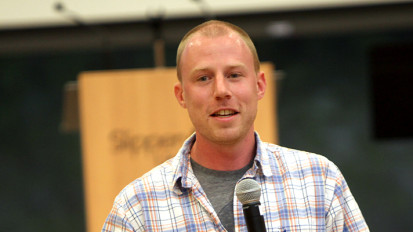 children — also offers a substantive, serious biblical theology. But this book does both; it is chock full of gratifying episodes, helpful insights drawn from crazy stories, and truly wise comments (not to mention a few wise cracks) as it offers what has to be called a robust, narrative, Christian theology. Perhaps I could say it offers a subtle, Biblically-informed, Christian philosophy. (They quote, most helpfully, the Dutch Kuyperian philosopher, Herman Dooyeweerd, for crying out loud, which gives it away as a particularly thoughtful project.) Like I say, this is a fun, but serious work.
children — also offers a substantive, serious biblical theology. But this book does both; it is chock full of gratifying episodes, helpful insights drawn from crazy stories, and truly wise comments (not to mention a few wise cracks) as it offers what has to be called a robust, narrative, Christian theology. Perhaps I could say it offers a subtle, Biblically-informed, Christian philosophy. (They quote, most helpfully, the Dutch Kuyperian philosopher, Herman Dooyeweerd, for crying out loud, which gives it away as a particularly thoughtful project.) Like I say, this is a fun, but serious work.
They make a few really good points, and they do so wonderfully. They insist (in a chapter that will be beneficial to anyone) that our lives our lived out influenced and made sensible by the story we find ourselves in. They use good lines from a lot of good books, including from Michael Goheen and Craig Bartholomew (you should know their magisterial overview of the Bible, The Drama of Scripture: Finding Our Place in the Biblical Story and their very astute study of worldviews, Living at the Crossroads: An Introduction to Christian Worldview.) They help us understand the role of narrative, how stories matter, and why storytelling is important as we make sense of our lives, and communicate a coherent vision of life to others. They don’t cite the renowned philosopher Alister McIntyre, but they could have. They do quote James K.A. Smith. If you like Donald Miller or Bob Goff, this “storied” approach will be appealing. I assure you, this first chapter is fantastic.
In the next several chapters they show how the Biblical drama is the one that most makes sense ofour lives, and how we so often mis-use the Bible by taking texts out of their storied context. They offer a Jubilee-esque telling of the Biblical story as the foundational narrative to make sense of our lives, and to shape us if we are to see ourselves as leaders. Much of the book draws on this narrative approach to the Bible, but they always show how this influences how they think about leadership.
For example, they are insistent that — since we are all called into this true story of the whole world — it is not helpful to talk about a few chosen and skilled leaders, while the rest of us are somehow consigned to be mere followers. No, their vision of leadership — itself informed, they argue, by the Story of God as heard in the Biblical drama itself — is one of collaboration for purposeful change. We are all called into this cosmic dance, reflecting God’s own image, being stewards of the gifts and potentials in the creation and in our own lives. In different spheres and times and places, different ones of us have different insight, authority and power, and together, we cooperate and collaborate to create normative social initiatives that push back the darkness and allow in a little light. They grappled with other definitions of leadership and, without weighing us down in arcane scholarly debates, the posit their view in distinction to other views that may be familiar. It is so helpful gift to have such clear and succinct prose, with a few stellar footnotes, perfect for younger readers, and, I am convinced, instructive even for those who read widely in this field of leadership studies.
It is significant that they insist on a multi-faceted, wholistic view of the human person, and so therefore, leadership isn’t conferred only on those with great intelligence or charisma or power. Leadership certainly isn’t mostly about techniques or skills. In a few fascinating pages they expose as unhelpful this view of leadership that grew to its high water mark in the modern, industrial era. They help us realize that we all are called into callings of leadership, and we don’t usually travel that journey alone. We are in this together, and they inspire us to great solidarity and collaboration throughout the book.
Donald Opitz, the College Pastor at Messiah College, puts it well in his colorful forward,
These authors are weary of books that turn leadership into a technique or a program. They recognize that leadership is not a form of coercion or a mode of control; rather it is a relationship. It is a pattern of social life and that pattern emerges in a narrative context.
In the great, great chapters unpacking the Bible, they camp out on some of my favorite passages, and teach things that I myself have been saying for years, so I am greatly encouraged to see these good lines and important proclamations and couldn’t be happier then to commend this to you. Although they weave stories about leadership development and offer insights about servanthood and the wise nurturing of what Brueggemann calls “the prophetic imagination” throughout, much of the book is informal Bible study. They know their stuff, they offer remarkable insight about many key passages, and I am sure that you will learn something new if you read their work.
In fact, I promise that in my own inside cover endorsement of the book, betting that you will shake your head and wonder why you never noticed that about a passage or text or idea in the Bible. After saying that, I continue
You smile as you read their stories, and, more importantly, you will be engulfed in and shaped by the truest story of all. Few books combine big picture transforming visions and down to Earth, practical advice.
Many other women and men endorse it in glowing ways. Steven Garber writes,
Jensen and Martel’s conversation ranges across the whole of life — thinking as we must about why we lead and how we lead. Reading widely, they are as familiar with leadership theory as they are with biblical theology, and offer a seamless, story-formed vision of what a good life looks like. I hope that people read it, and read it again.
PRACTICING THE STORY
After the first two thirds of the book — their argument that the Bible is a story, and that that story should shape and inform how we think about leadership and calling and our work together in God’s Kingdom — they then end the book with a good set of short chapters which they call “Practicing the Story.”
Here, they give no-nonsense advice, drawn from their own years in ministry, in higher education, and in church work. They know that folks need more than the rhetoric of “living a better story” but to inhabit their own local places and spaces in healthy, normative ways. We need to rebuild among the ruins. They know that people do not need techniques or formulas, not even exactly spiritual disciplines, but life-giving practices. Drawing on the most innovative learning theories (and face-to-face conversations with Wendell Berry and others of his localist perspective) they fashion a set of refreshing practices which will help anyone pursue their leadership over the longer haul of their lives. A Long Obedience in the Same Direction says Eugene Peterson, drawing on the clever line by Nietzsche. Jensen and Martel get this, and want to offer their readers on-ramps and hand-rails, guidance for doing life in better ways.
These last chapters are clear and sensible and very helpful, even if they are mostly nothing new.
I say mostly, as there are some ideas in this part that may strike some as very new. This bit of good advice accompanied by great illustrative stories was more moving then I expected. (Two of these chapters, in fact, nearly moved me to tears.)
Importantly, they frame these spiritual practices as ways of “practicing the story” so even in their telling, they offer them in fresh and compelling ways. This stuff at the end is really good. The discussion questions are very good, and the exercises are practical and not to be missed. Living out new practices shaped by God’s redemptive story is the point, and their guidance in these things is helpful indeed.
THE STORIED PRACTICES AND EXERCISES
Briefly, I will tell you that in the first of these storied practices, they talk about vision and vision casting. Then there is one of the great chapters called “Networking for the Common Good” (in which they talk about one of our mutual friends, Scott — you know who he is if your in those circles.) The “Expectation Gap” is a wise and honest chapter, worth its weight in gold. And then there is the other one that too me by surprise and blew me away, a hard practice, being “Disarmingly Honest.” “Restorative Conflict” is the next, followed by wise teaching about sabbath and “Rhythms of Rest.”
THE BIG PICTURE, THE BEST BIBLICAL STUDIES, APPLIED TO THIS
For what it is worth, I wanted to start this BookNotes post by writing about Jubilee once more. I wanted to declare how books like Al Wolter’s Creation Regained have given a generation of younger activists and scholars and speakers a foundational framework for thinking about the narrative nature of Scripture, how we can find the meaning of our own unfolding stories by being found by to be a part of the story of God. I wanted to assert how the doctrine of creation — and all its implications for culture making — is essential for Christian scholarship about various careers and aspects of modern society. This “Christian mind” stuff as we work out the details of our vocations and callings is at the heart of our business here, and the CCO and their Jubilee event celebrates that with such enthusiasm.
In starting there, though, I also wanted to show — as one shining example of young authors writing fresh books inspired by this very vision — Storied Leadership: Foundations of Leadership From a Christian Perspective as a book that has unique connections to the CCO and to the Pittsburgh Jubilee conference. It takes the doctrine of creation seriously, and it explores how the how narrative arch of Scripture should inform even the way in which we think about (in this case) leadership. And it doesn’t end with highfalutin’ philosophical ruminations on leadership, it ends with embodied practices that help us dig in and learn the craft of being in God’s world in a particular way.
As Keith’s wife says in her great new Storied Leadership blog for moms, “every practice emerges from a story about reality.”
Storied Leadership is a great little book good for anyone wanting to see how the story of God shapes our efforts to serve God. But it also is a case study, a great example, of what we most need: intentionally thoughtful but down to Earth, communal reflections working out the details of the rhetoric of “creation-fall-redemption”, “creation regained” and “all of life redeemed” that so many of us thrive on. This books is a treasure and I tip my hat to the authors for “working out” the implications of this in such nice ways. And for their (storied) leadership.
Which does, in fact, circle back to the CCO and the Jubilee conference. Jensen and Martel write in their foreword
We are both grateful for the influence of the CCO (Coalition for Christian Outreach) and the important work they do in the lives of college students. We are different people because of this organization. The CCO’s Jubilee conference is perhaps the most important gathering of young people in America. For decades it has helped students understand the connection between the grand biblical story and their lives and vocations.
LASTLY
You obviously don’t have to go to Jubilee to know that God is rescuing the beloved and blessed creation.
Scholars from all sorts of theological viewpoints have long held this.
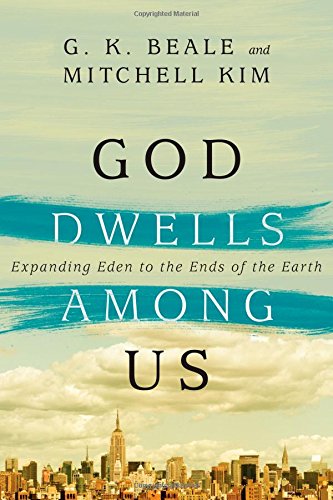
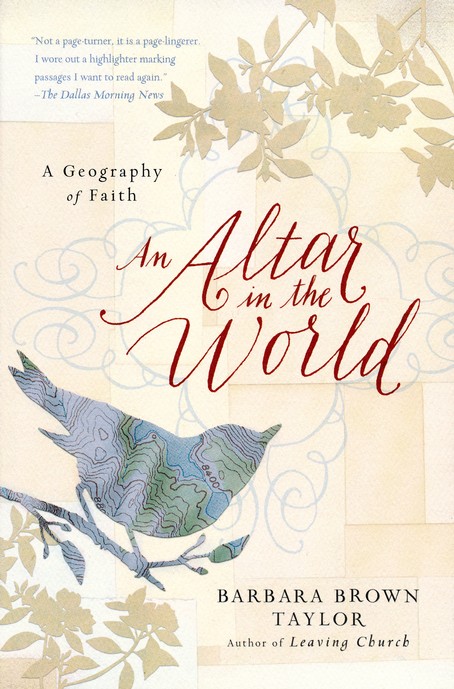
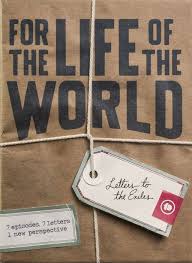 Just think of the Russian Orthodox priest Alexander Schmemenn’s book For the Life of the World and the upbeat, artful DVD with that same name which was produced by Reformed folks at the Roman Catholic Acton Institute. Or recall the book I’ve often touted Salvation Means Creation Healed by Wesleyan scholar and former missionary, Howard Snyder, co- written by Anglican Joel Scandrett. Or pick up the themes creation-fall-redemption, seen as homemaking, exile, and homecoming in the extraordinary and generative work of Brian Walsh & Steve Bouma-Prediger in their groundbreaking Beyond Homelessness: Christian Faith in a Culture of Displacement. Or catch the vision of the recent overview of the Bible by former emergent leader Brian McLaren developed as a year long devotional in The Road Is Made By Walking and its quest for “formation, reorientation and activation.” From a recent study of the promise and perils of technology in Biblical perspective by Dallas Seminary tech guy John Dyer called (get this!) From a Garden to A City to the likes of Barbara Brown Taylor’s exquisite rumination on the goodness of creation in An Altar in The World: A Geography of Faith to the serious Biblical theology of Greg K. Beale & Mitchell Kim in their God Dwells Among Us: Expanding Eden to the Ends of the Earth we are seeing an ecumenical renaissance of how all this works together to help us live more missionally and faithfully for the life of the being-redeemed world — living a long obedience in the same direction towards the new Jerusalem.
Just think of the Russian Orthodox priest Alexander Schmemenn’s book For the Life of the World and the upbeat, artful DVD with that same name which was produced by Reformed folks at the Roman Catholic Acton Institute. Or recall the book I’ve often touted Salvation Means Creation Healed by Wesleyan scholar and former missionary, Howard Snyder, co- written by Anglican Joel Scandrett. Or pick up the themes creation-fall-redemption, seen as homemaking, exile, and homecoming in the extraordinary and generative work of Brian Walsh & Steve Bouma-Prediger in their groundbreaking Beyond Homelessness: Christian Faith in a Culture of Displacement. Or catch the vision of the recent overview of the Bible by former emergent leader Brian McLaren developed as a year long devotional in The Road Is Made By Walking and its quest for “formation, reorientation and activation.” From a recent study of the promise and perils of technology in Biblical perspective by Dallas Seminary tech guy John Dyer called (get this!) From a Garden to A City to the likes of Barbara Brown Taylor’s exquisite rumination on the goodness of creation in An Altar in The World: A Geography of Faith to the serious Biblical theology of Greg K. Beale & Mitchell Kim in their God Dwells Among Us: Expanding Eden to the Ends of the Earth we are seeing an ecumenical renaissance of how all this works together to help us live more missionally and faithfully for the life of the being-redeemed world — living a long obedience in the same direction towards the new Jerusalem.
These books are laying the groundwork from which and out of which fresh work can be done in different fields. Storied Leadership takes this vision and perspective and knowingly explains it in accessible terms, and shows how it shapes and influences a new vision of leadership. As I said, I think it is well worth buying. Thanks for considering it.

BookNotes

SPECIALDISCOUNTANY ITEM MENTIONED
20% off
order heretakes you to the secure Hearts & Minds order form pagejust tell us what you want
inquire here
if you have questions or need more information
just ask us what you want to know
Hearts & Minds 234 East Main Street Dallastown, PA 17313 717-246-3333
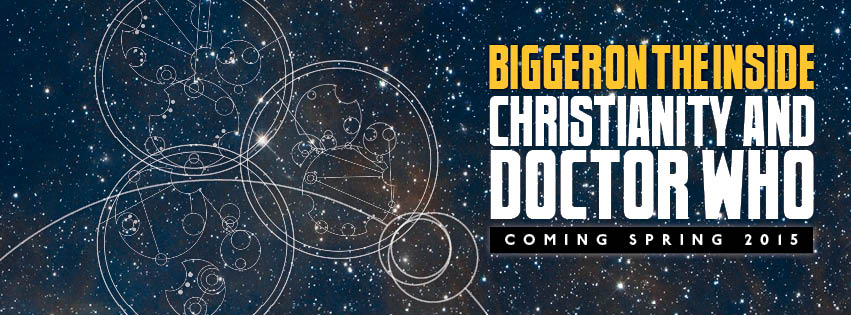
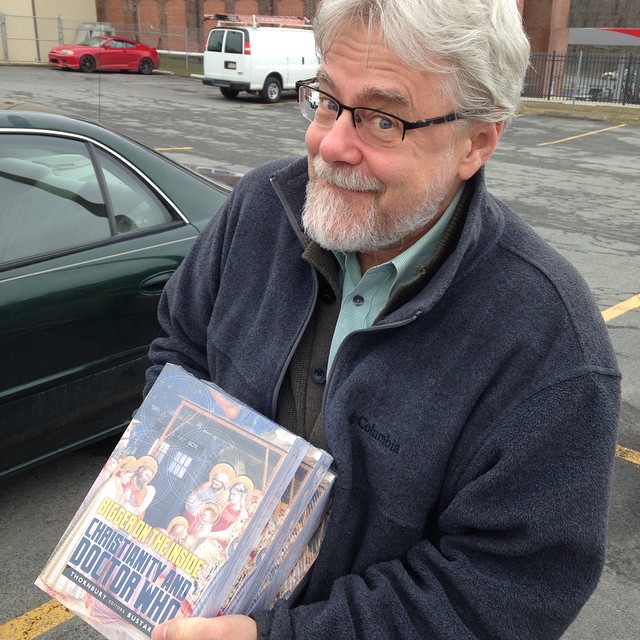
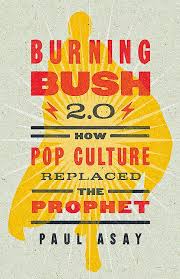 A new book cleverly
A new book cleverly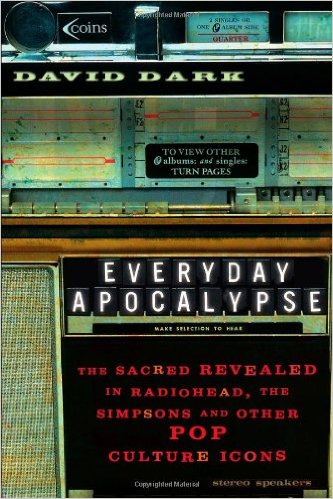
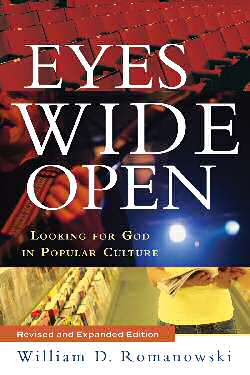 granddaddy of many of these books, Eyes Wide Open: Looking for God in Popular
granddaddy of many of these books, Eyes Wide Open: Looking for God in Popular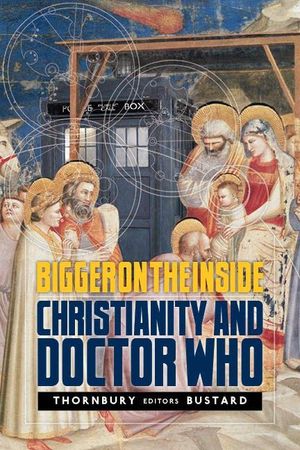 Bigger on the Inside: Christianity and
Bigger on the Inside: Christianity and The show premiered in 1963 (the day after the Kennedy assassination) incredibly lasting in its first incarnation until 1989. Increasingly, perhaps a bit like the Star Trek franchise, the Doctor Who show has developed a cult following, especially now, after the popular relaunching/revival of it the show in 2005. There are, you should know, a lot of companions.
The show premiered in 1963 (the day after the Kennedy assassination) incredibly lasting in its first incarnation until 1989. Increasingly, perhaps a bit like the Star Trek franchise, the Doctor Who show has developed a cult following, especially now, after the popular relaunching/revival of it the show in 2005. There are, you should know, a lot of companions. commonly-used expression when characters in the show learn of the phone-booth-like, British police box that serves as the Doctor’s time
commonly-used expression when characters in the show learn of the phone-booth-like, British police box that serves as the Doctor’s time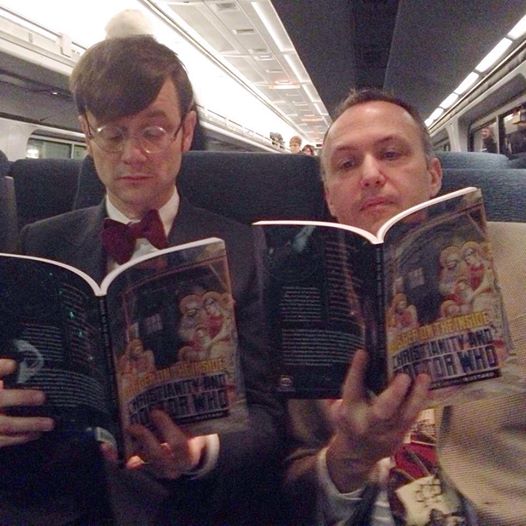 school student to an Anglican minister with a degree in the natural sciences from Cambridge.
school student to an Anglican minister with a degree in the natural sciences from Cambridge.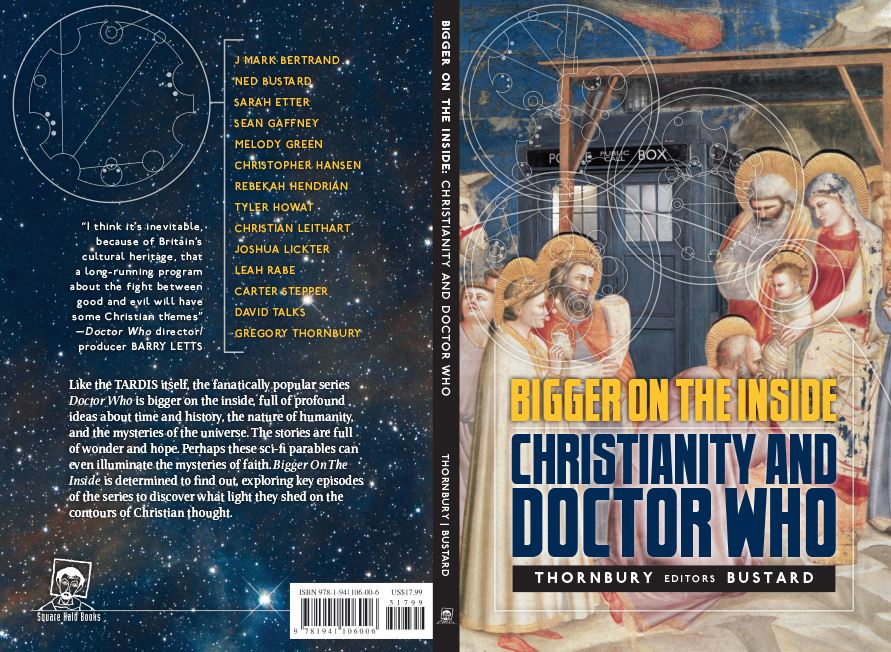 I mentioned that Bigger
I mentioned that Bigger
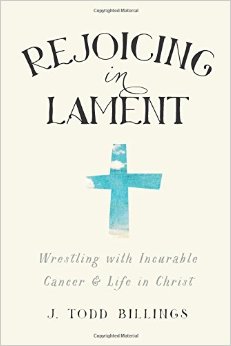 Rejoicing in Lament: Wrestling with Incurable Cancer and Life in Christ J. Todd Billings (Brazos Press) $18.99 In
Rejoicing in Lament: Wrestling with Incurable Cancer and Life in Christ J. Todd Billings (Brazos Press) $18.99 In  One chapter title is called “Walking in the Fog: A Narrowed Future or a Spacious Place?” Another is called “Joining the Resistance: Lament and Compassionate Witness to the Present and Future King.” Yet another is called “The Light of Perfect Love in the Darkness.” (Ha – let that sink in!) You can see he is exploring some deep stuff, and he has a good eye for a good phrase.
One chapter title is called “Walking in the Fog: A Narrowed Future or a Spacious Place?” Another is called “Joining the Resistance: Lament and Compassionate Witness to the Present and Future King.” Yet another is called “The Light of Perfect Love in the Darkness.” (Ha – let that sink in!) You can see he is exploring some deep stuff, and he has a good eye for a good phrase.
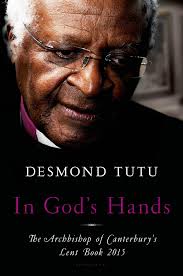 In God’s Hands Desmond Tutu (Bloomsbury) $23.00 I hope you know that every year the Archbishop of Canterbury suggests a book to read during Lent. It may be (given the world-wide nature of the Anglican communion) one of the most popular “book club” reads of which we know. We usually carry this Archbishop’s Select (which makes it sound like a fine wine) and we were especially glad this year that the 2015 selection was a brand new one by Desmond Tutu.
In God’s Hands Desmond Tutu (Bloomsbury) $23.00 I hope you know that every year the Archbishop of Canterbury suggests a book to read during Lent. It may be (given the world-wide nature of the Anglican communion) one of the most popular “book club” reads of which we know. We usually carry this Archbishop’s Select (which makes it sound like a fine wine) and we were especially glad this year that the 2015 selection was a brand new one by Desmond Tutu.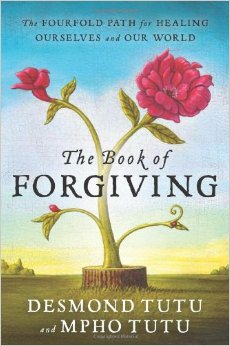 his daughter, Mpho Tutu (who lives in the US and is also a priest) is a fine book called The Book of Forgiving The Four-Fold Path for Healing Ourselves and Our World (HarperOne; $25.99) and that would itself make a
his daughter, Mpho Tutu (who lives in the US and is also a priest) is a fine book called The Book of Forgiving The Four-Fold Path for Healing Ourselves and Our World (HarperOne; $25.99) and that would itself make a
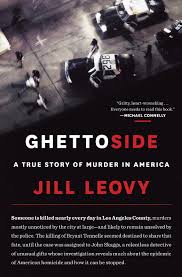 Ghettoside: A True Story of Murder in American Jill Leovy (Spiegel & Grau) $28.00 I have written in the last BookNotes column that Lent is a time to be honest about the brokenness of our world, lamenting our own complicity in sin and attending to our own pain and sorrows. The Bible authorizes this among us, and healthy piety and spiritual practices always allow us to be more honest, more authentic, not less. Perhaps it isn’t wise to always “air dirty laundry” as the elders among us used to put it, and maybe we need not wallow in our own miseries, such as they are. But, again, at least in this season of the church year, we follow Christ towards his own great passions, and are fortified to take up the sadnesses of our lives, and the sacrifices of our own callings
Ghettoside: A True Story of Murder in American Jill Leovy (Spiegel & Grau) $28.00 I have written in the last BookNotes column that Lent is a time to be honest about the brokenness of our world, lamenting our own complicity in sin and attending to our own pain and sorrows. The Bible authorizes this among us, and healthy piety and spiritual practices always allow us to be more honest, more authentic, not less. Perhaps it isn’t wise to always “air dirty laundry” as the elders among us used to put it, and maybe we need not wallow in our own miseries, such as they are. But, again, at least in this season of the church year, we follow Christ towards his own great passions, and are fortified to take up the sadnesses of our lives, and the sacrifices of our own callings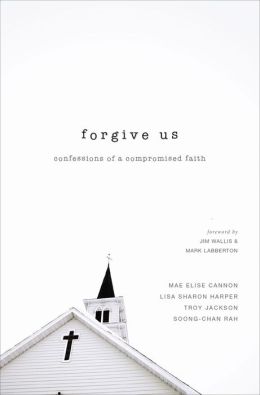
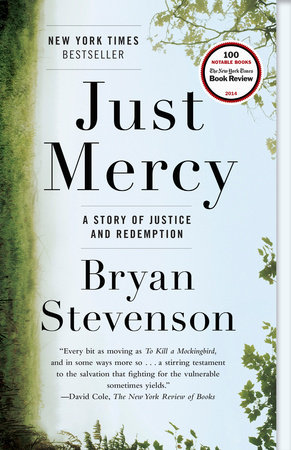 informative and deeply moving Just Mercy: A Story of Justice and Redemption by a young hero of ours, Bryan Stevenson (Spiegel & Grau; $28.00.) Also, we promoted often the collection of essays inviting the church to public repentance, a book I even read in manuscript form, to offer an endorsing blurb, called Forgive Us: Confessions of a Compromised Faith edited by Lisa Harper and others (Zondervan; $22.99.) Either would make an excellent read over the next week or so and we commend them both.)
informative and deeply moving Just Mercy: A Story of Justice and Redemption by a young hero of ours, Bryan Stevenson (Spiegel & Grau; $28.00.) Also, we promoted often the collection of essays inviting the church to public repentance, a book I even read in manuscript form, to offer an endorsing blurb, called Forgive Us: Confessions of a Compromised Faith edited by Lisa Harper and others (Zondervan; $22.99.) Either would make an excellent read over the next week or so and we commend them both.)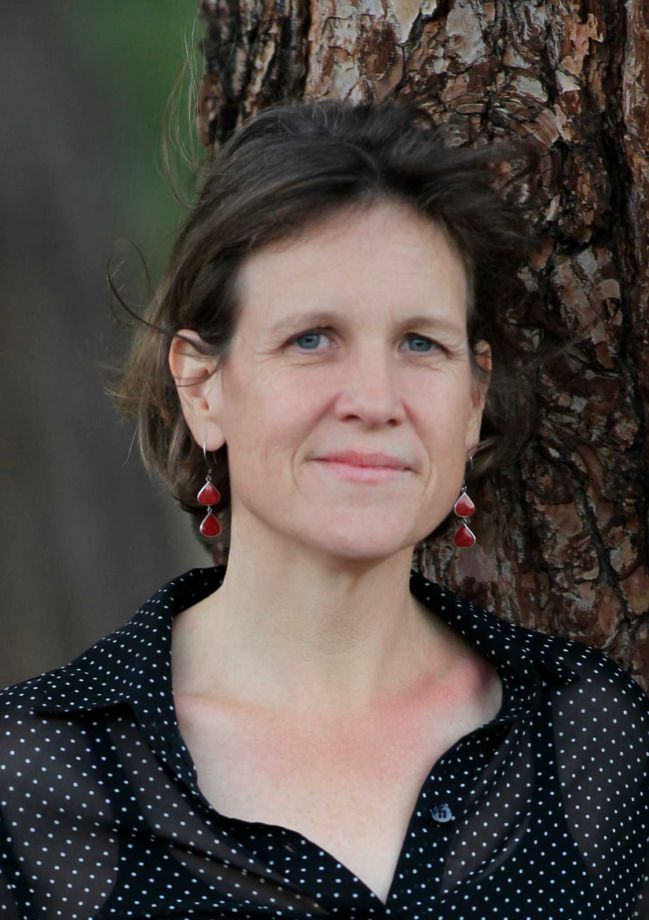 with the found poetry of the street. This book will take an honored place on the shelf that includes David Simon’s classic Homicide and Michelle Alexander’s explosive study of mass incarceration, The New Jim Crow.
with the found poetry of the street. This book will take an honored place on the shelf that includes David Simon’s classic Homicide and Michelle Alexander’s explosive study of mass incarceration, The New Jim Crow.
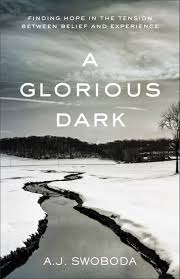 A Glorious Dark: Finding Hope in the Tension Between Belief and Experience A. J. Swoboda (Baker) $14.99
A Glorious Dark: Finding Hope in the Tension Between Belief and Experience A. J. Swoboda (Baker) $14.99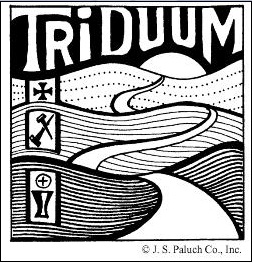 ALMOST
ALMOST 
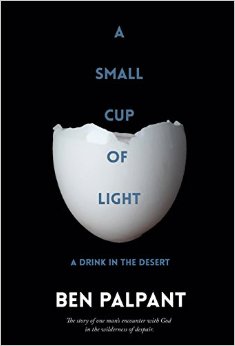 A Small Cup of Light: A Drink in the Desert Ben Palpant (Ben Palpant) $14.99
A Small Cup of Light: A Drink in the Desert Ben Palpant (Ben Palpant) $14.99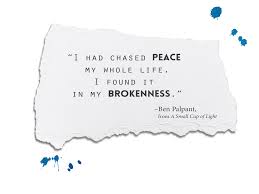 . He is in a camp with the likes of Jonathan Edwards and John Frame and John Piper, here, and it was a great comfort to him, knowing that even suffering is redeemed by an all powerful God. (This comes through in the powerful trailer video, above.)
. He is in a camp with the likes of Jonathan Edwards and John Frame and John Piper, here, and it was a great comfort to him, knowing that even suffering is redeemed by an all powerful God. (This comes through in the powerful trailer video, above.) 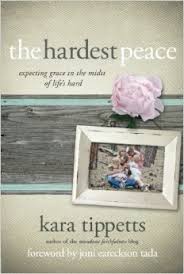 The Hardest Peace: Expecting Grace in the Midst of Life’s Hard Kara Tippetts (Cook) $15.99 I have had this book on the stack to tell you about for several weeks now, waiting till this column. You may have been following the amazingly poignant, deeply sad blog of the dying Kara Tippetts, called mundane faithfulness. You may have heard that she died today, and we name this book, now, published less then a year ago, in her honor. I don’t want to say much more about this, am sorry for her husband and family, but it has been very moving for many and we wanted to show it. She started the book before she was really well known, and includes more than just her time of dying. Rest in peace, honest sister.
The Hardest Peace: Expecting Grace in the Midst of Life’s Hard Kara Tippetts (Cook) $15.99 I have had this book on the stack to tell you about for several weeks now, waiting till this column. You may have been following the amazingly poignant, deeply sad blog of the dying Kara Tippetts, called mundane faithfulness. You may have heard that she died today, and we name this book, now, published less then a year ago, in her honor. I don’t want to say much more about this, am sorry for her husband and family, but it has been very moving for many and we wanted to show it. She started the book before she was really well known, and includes more than just her time of dying. Rest in peace, honest sister.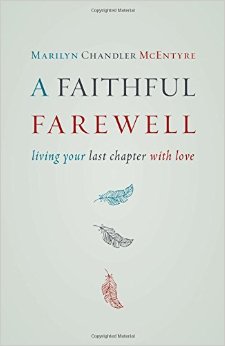 A Faithful Farewell: Living Your Last Chapter With Love Marilyn Chandler McEntyre (Eerdmans) $15.00 You may know my profound admiration for this writer, whose book Caring for Words in a Culture of Lies is an all time favorite, often mentioned in workshops I do on reading and books. (They were the Princeton Stone Lectures a few years back, knowingly standing on the shoulders of Kuyper.) She did another wonderfully written set of ruminations on phrases of the Bible (What’s in a Phrase?) that was wonderfully done. This just came in, reflections for the dying. She has volunteered in hospice work and may have had the loss of a family member recently. These first-person essays have fantastic endorsements, from Richard Lischer, Michael Lindvall, Harold Koenig and others who are well acquainted with the night.
A Faithful Farewell: Living Your Last Chapter With Love Marilyn Chandler McEntyre (Eerdmans) $15.00 You may know my profound admiration for this writer, whose book Caring for Words in a Culture of Lies is an all time favorite, often mentioned in workshops I do on reading and books. (They were the Princeton Stone Lectures a few years back, knowingly standing on the shoulders of Kuyper.) She did another wonderfully written set of ruminations on phrases of the Bible (What’s in a Phrase?) that was wonderfully done. This just came in, reflections for the dying. She has volunteered in hospice work and may have had the loss of a family member recently. These first-person essays have fantastic endorsements, from Richard Lischer, Michael Lindvall, Harold Koenig and others who are well acquainted with the night.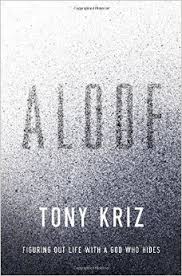 Aloof: Figuring Out Life with a God Who Hides Tony Kriz (Thomas Nelson) $15.99 Years ago, Tony was most known as Tony the Beat Poet from Blue Like Jazz. I raved about his memoir Neighbors and Other Wise Men. Here he has taken spiritual memoir to a new level, reflecting honestly about God’s absence, or our experience of God’s absence. Frank Schaeffer says of Aloof, “It is a work of art.” Randy Woodley says “Tony Kirz asks difficult questions and shares sacred stories that find their way into our souls, drawing out our hidden questions and helping us to voice our sacred stories. Tony’s style reminds me of someone…sometimes his words are in red!” There are pages and pages of endorsements on the front — from edgy activist friends like Lisa Sharon Harper and Tim Soerens and Sean Gladding and Leroy Barber, and more established figures like Dr. Andrea Cook, the President of Warner Pacific College and Kevin Palau Oregon State Senator, The Honorable Jason Atkinson. In a way, this is brave stuff, shifting away from any formulas, and sharing doubt with honesty and passion. Kudos.
Aloof: Figuring Out Life with a God Who Hides Tony Kriz (Thomas Nelson) $15.99 Years ago, Tony was most known as Tony the Beat Poet from Blue Like Jazz. I raved about his memoir Neighbors and Other Wise Men. Here he has taken spiritual memoir to a new level, reflecting honestly about God’s absence, or our experience of God’s absence. Frank Schaeffer says of Aloof, “It is a work of art.” Randy Woodley says “Tony Kirz asks difficult questions and shares sacred stories that find their way into our souls, drawing out our hidden questions and helping us to voice our sacred stories. Tony’s style reminds me of someone…sometimes his words are in red!” There are pages and pages of endorsements on the front — from edgy activist friends like Lisa Sharon Harper and Tim Soerens and Sean Gladding and Leroy Barber, and more established figures like Dr. Andrea Cook, the President of Warner Pacific College and Kevin Palau Oregon State Senator, The Honorable Jason Atkinson. In a way, this is brave stuff, shifting away from any formulas, and sharing doubt with honesty and passion. Kudos.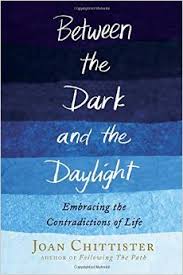 Between the Dark and the Daylight: Embracing the Contradictions of life Sister Joan Chittister (Image) $20.00 This, too, is brand new, and I’ve not spent much time with it. But Sister Joan, a Benedictine who I met years and years ago in Erie, has grown to be one of the top and most beloved religious writers of our time. (Sometimes people ask me who has taken over the spot left by Henri Nouwen. Joan’s name always comes to mind.) With endorsements from Barbara Brown Taylor and Richard Rohr and James Martin, you can imagine that this is progressive, gracious, well written, Catholic spirituality. Judith Valente (who wrote the great memoir Atchison Blue) says “Joan Chittister has written what promises to become a spiritual classic — a guide for those of us who have ever spent sleepless nights wrestling with our own frustrations, fear of the unknown, and pain of loss and separation… This is the most poetic writing yet from a woman who is a modern prophet.” I like what Barbara Brown Taylor says when she insists that “these are the questions that make you human, and can make you more joyously human if you choose.” And right there’s another seeming contradiction, a paradox, if you will. Reading hard books about complicated things that don’t have easy answers can be enjoyable, and give us great joy. How ’bout that?
Between the Dark and the Daylight: Embracing the Contradictions of life Sister Joan Chittister (Image) $20.00 This, too, is brand new, and I’ve not spent much time with it. But Sister Joan, a Benedictine who I met years and years ago in Erie, has grown to be one of the top and most beloved religious writers of our time. (Sometimes people ask me who has taken over the spot left by Henri Nouwen. Joan’s name always comes to mind.) With endorsements from Barbara Brown Taylor and Richard Rohr and James Martin, you can imagine that this is progressive, gracious, well written, Catholic spirituality. Judith Valente (who wrote the great memoir Atchison Blue) says “Joan Chittister has written what promises to become a spiritual classic — a guide for those of us who have ever spent sleepless nights wrestling with our own frustrations, fear of the unknown, and pain of loss and separation… This is the most poetic writing yet from a woman who is a modern prophet.” I like what Barbara Brown Taylor says when she insists that “these are the questions that make you human, and can make you more joyously human if you choose.” And right there’s another seeming contradiction, a paradox, if you will. Reading hard books about complicated things that don’t have easy answers can be enjoyable, and give us great joy. How ’bout that?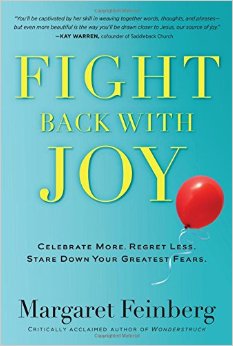 Fight Back With Joy: Celebrate More. Regret Less. Stare Down Your Greatest Fears Margaret Feinberg (Worthy) $15.99 Dear Margaret does not write like Henri Nouwen or Joan Chittister, although I am sure she appreciates them. She is more lively, more funny, more conversational about real-world daily stuff (her dog, her hubby) and although a bit Pentecostal, it seems, she brings a down-to-Earth faith that always leaves me buoyed. Except here, which tore me up as I read an advanced manuscript. Margaret, who we learn in the very beginning, is setting out to do another book, and it is to be on joy. She experiments with some typical Feinberg stunts — saying yes to everything! Joy is going to be her “one word” etcetera — and too soon, on page 9 to be exact, she gets the dreaded call. She has serious, serious breast cancer. I am overcome sitting here, thinking about it, even though I’ve read that damn page a dozen times. Still, she concludes she should carry on with her joy bit, and, indeed, it saves her life. Fighting back with joy becomes a serious study of the costs of discipleship, the “dangerous duty of delight” as another author once put it. She is not Ben Palpant, debilitated and paralyzed with existential and poetic questions, she is a go-getter and, cancer or no cancer, is convinced God wants her to be joyful, to share good news with others, to be a blessing. She’s like Bob Goff on steroids, bringing helium balloons to others and overcoming depression by reigniting her imagination using laughter and goodness.
Fight Back With Joy: Celebrate More. Regret Less. Stare Down Your Greatest Fears Margaret Feinberg (Worthy) $15.99 Dear Margaret does not write like Henri Nouwen or Joan Chittister, although I am sure she appreciates them. She is more lively, more funny, more conversational about real-world daily stuff (her dog, her hubby) and although a bit Pentecostal, it seems, she brings a down-to-Earth faith that always leaves me buoyed. Except here, which tore me up as I read an advanced manuscript. Margaret, who we learn in the very beginning, is setting out to do another book, and it is to be on joy. She experiments with some typical Feinberg stunts — saying yes to everything! Joy is going to be her “one word” etcetera — and too soon, on page 9 to be exact, she gets the dreaded call. She has serious, serious breast cancer. I am overcome sitting here, thinking about it, even though I’ve read that damn page a dozen times. Still, she concludes she should carry on with her joy bit, and, indeed, it saves her life. Fighting back with joy becomes a serious study of the costs of discipleship, the “dangerous duty of delight” as another author once put it. She is not Ben Palpant, debilitated and paralyzed with existential and poetic questions, she is a go-getter and, cancer or no cancer, is convinced God wants her to be joyful, to share good news with others, to be a blessing. She’s like Bob Goff on steroids, bringing helium balloons to others and overcoming depression by reigniting her imagination using laughter and goodness. 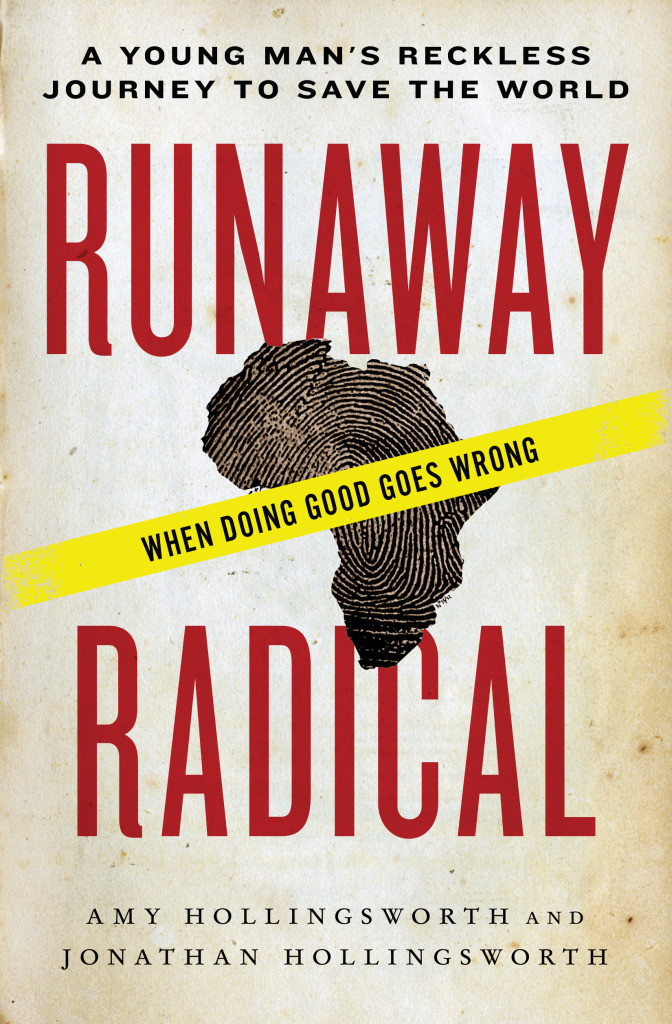 Hollingsworth and Jonathan Hollingsworth (Thomas Nelson – regularly $15.99) is a book that is very well written, exceptionally moving, of interest to many different sorts of readers, and, I think, is very, very important. I could hardly put it down, except when I had to stop to talk to Beth about it. (And boy, did it cause me to ponder, to pray, to confess, even. It struck fairly close to home, for some reasons I need not describe here.) I think it is the best book I’ve read so far this year.
Hollingsworth and Jonathan Hollingsworth (Thomas Nelson – regularly $15.99) is a book that is very well written, exceptionally moving, of interest to many different sorts of readers, and, I think, is very, very important. I could hardly put it down, except when I had to stop to talk to Beth about it. (And boy, did it cause me to ponder, to pray, to confess, even. It struck fairly close to home, for some reasons I need not describe here.) I think it is the best book I’ve read so far this year. 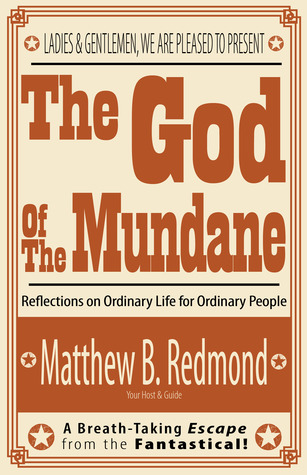
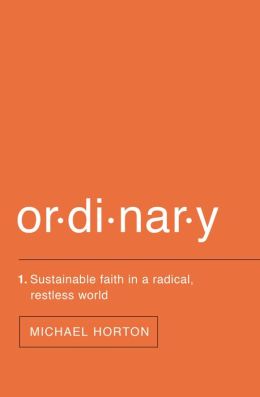
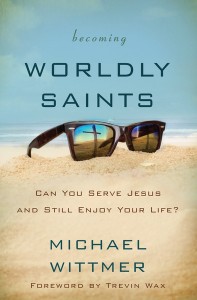 good creation, with titles such as Becoming Worldly Saints: Can You Serve Jesus and Still Enjoy Your Life? a must-read book by Michael Wittmer (Zondervan; $15.99.)
good creation, with titles such as Becoming Worldly Saints: Can You Serve Jesus and Still Enjoy Your Life? a must-read book by Michael Wittmer (Zondervan; $15.99.)  Mission), Christine Caine (Undaunted and Unstoppable), Jeremy Courtney (Preemptive Love), Ken Wystma (Pursuing Justice: The Call to Live and Die for Greater Things) or the good folks at Mission Year, say, inviting young adults to a year of voluntary service where they can see, as their latest, wonderful book puts it, God is in the City: Encounters of Grace and Transformation (by Shawn Casselberry.) Who would ever want to silence the always whimsical, Jesus-centered, if sometimes audacious Bob Goff, author of the popular Love Does? I’m glad for extraordinary DVD curriculum like the World Vision produced Start. Or the compelling book by their director, Richard Stearns, The Hole in the Gospel. And glad for the publicity given in recent years to those who fight sexual trafficking through groups like
Mission), Christine Caine (Undaunted and Unstoppable), Jeremy Courtney (Preemptive Love), Ken Wystma (Pursuing Justice: The Call to Live and Die for Greater Things) or the good folks at Mission Year, say, inviting young adults to a year of voluntary service where they can see, as their latest, wonderful book puts it, God is in the City: Encounters of Grace and Transformation (by Shawn Casselberry.) Who would ever want to silence the always whimsical, Jesus-centered, if sometimes audacious Bob Goff, author of the popular Love Does? I’m glad for extraordinary DVD curriculum like the World Vision produced Start. Or the compelling book by their director, Richard Stearns, The Hole in the Gospel. And glad for the publicity given in recent years to those who fight sexual trafficking through groups like  only sad part of the story of Runaway Radical: A Young Man’s Reckless Journey to Save the World. A significant part of the story is a surprising twist in the plot: the mission agency in Cameroon where Jonathan goes is, to put it simply, corrupt. He sees abuse of funds, abuse of people — domestic violence and spiritual manipulation and emotional abuse. He cannot blow the whistle; he himself is seemingly caught in a nearly tragic situation. (Oh, the irony, that the Cameroon church leaders, all men, in that place, are preaching an extreme version of the false “prosperity gospel” and living large at the expense of their impoverished flocks. It is widely known that this troubling North American teaching has found significant inroads in many parts of the African church, and I was surprised that the Hollingsworth’s had apparently not adequately vetted this particular ministry or expected these sorts of troubles. How this mission agency was chosen is not explained although it becomes clear that it was connected to folks Jonathan knew, perhaps in the church in which he was involved. It is a slight hole in the narrative, but I suspect they are trying to be discreet and honorable. Throughout the book no names or authors or churches or ministries are named, which I suppose is to their credit.)
only sad part of the story of Runaway Radical: A Young Man’s Reckless Journey to Save the World. A significant part of the story is a surprising twist in the plot: the mission agency in Cameroon where Jonathan goes is, to put it simply, corrupt. He sees abuse of funds, abuse of people — domestic violence and spiritual manipulation and emotional abuse. He cannot blow the whistle; he himself is seemingly caught in a nearly tragic situation. (Oh, the irony, that the Cameroon church leaders, all men, in that place, are preaching an extreme version of the false “prosperity gospel” and living large at the expense of their impoverished flocks. It is widely known that this troubling North American teaching has found significant inroads in many parts of the African church, and I was surprised that the Hollingsworth’s had apparently not adequately vetted this particular ministry or expected these sorts of troubles. How this mission agency was chosen is not explained although it becomes clear that it was connected to folks Jonathan knew, perhaps in the church in which he was involved. It is a slight hole in the narrative, but I suspect they are trying to be discreet and honorable. Throughout the book no names or authors or churches or ministries are named, which I suppose is to their credit.)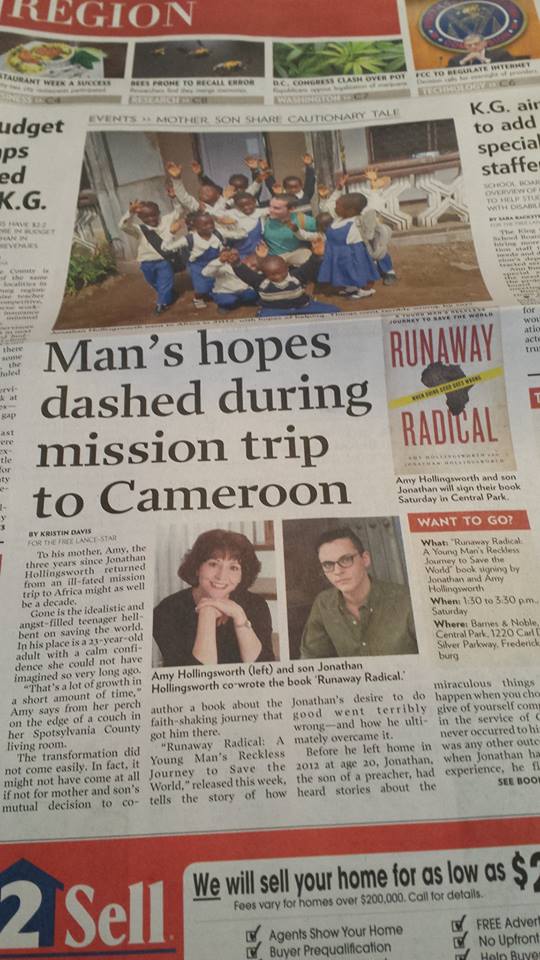
 fiery young man’s faith left little room for doubt, let alone failure. Yet, in his journey into tough questions, a failed discernment of his call, and his experience of spiritual abuse at the hands of fundamentalists, he has emerged with a sober, gentle, and lighter sort of faith. He has not renounced the gospel, he has come to understand it more profoundly.
fiery young man’s faith left little room for doubt, let alone failure. Yet, in his journey into tough questions, a failed discernment of his call, and his experience of spiritual abuse at the hands of fundamentalists, he has emerged with a sober, gentle, and lighter sort of faith. He has not renounced the gospel, he has come to understand it more profoundly.
 conservative, Reformed theologian and public intellectual who has written widely about racial injustices, black theology, and just released a volume he edited, Black Scholars in White Space: New Vistas in African American Studies from the Christian Academy [Wipf & Stock; $26.00.] that includes pieces by a number of African American scholars and leaders in higher education, including some who were at Jubilee.
conservative, Reformed theologian and public intellectual who has written widely about racial injustices, black theology, and just released a volume he edited, Black Scholars in White Space: New Vistas in African American Studies from the Christian Academy [Wipf & Stock; $26.00.] that includes pieces by a number of African American scholars and leaders in higher education, including some who were at Jubilee. political life, we are to honor God by opening up the potentials of the created order, designed and upheld by the Triune God of the Bible.
political life, we are to honor God by opening up the potentials of the created order, designed and upheld by the Triune God of the Bible.  ones on the fall, and redemption) helps frame the conference. His chapter on discerning God’s creational ordinances, in contrast to the distorting and disfiguring misdirection caused by sin, idols and ideologies — he uses the distinctions between “structure” and “direction” which is to say that we must know what is good, ordered by God and creation and what is sinfully off, twisted, not as it is supposed to be — is nothing short of brilliant. It was great to hear Dr. Anthony Bradley preach around these themes, knowing he is familiar with this key text, Creation Regained. That Dr. Bradley is one of the stars of the For the Life of the World DVD didn’t hurt, either. That DVD is so, so solid on this very matter.
ones on the fall, and redemption) helps frame the conference. His chapter on discerning God’s creational ordinances, in contrast to the distorting and disfiguring misdirection caused by sin, idols and ideologies — he uses the distinctions between “structure” and “direction” which is to say that we must know what is good, ordered by God and creation and what is sinfully off, twisted, not as it is supposed to be — is nothing short of brilliant. It was great to hear Dr. Anthony Bradley preach around these themes, knowing he is familiar with this key text, Creation Regained. That Dr. Bradley is one of the stars of the For the Life of the World DVD didn’t hurt, either. That DVD is so, so solid on this very matter.  The Bible Speaks Today: The Message of Creation: Encountering the Lord of the Universe David Wilkinson (IVP Academic) $20.00 I trust you know the commentary series “The Bible Speaks Today.” In recent years they have branched out, doing Biblical exegesis, as you would find in a solid, mid-range, useful commentary, in books about a theme. This one, systematically commenting on all the Biblical texts about or alluding to creation, is extraordinarily useful as this Bible scholar traces the theme of creation through the rich tapestry of Scripture and brings it into lively conversation with contemporary concerns. There is even a several week Bible study guide in the back making this ideal for small groups or adult Christian education classes.
The Bible Speaks Today: The Message of Creation: Encountering the Lord of the Universe David Wilkinson (IVP Academic) $20.00 I trust you know the commentary series “The Bible Speaks Today.” In recent years they have branched out, doing Biblical exegesis, as you would find in a solid, mid-range, useful commentary, in books about a theme. This one, systematically commenting on all the Biblical texts about or alluding to creation, is extraordinarily useful as this Bible scholar traces the theme of creation through the rich tapestry of Scripture and brings it into lively conversation with contemporary concerns. There is even a several week Bible study guide in the back making this ideal for small groups or adult Christian education classes. Wisdom and Wonder: Common Grace in Science and Art Abraham Kuyper (Christian’s Library Press) $14.99 The spectacular Saturday night speaker at Jubilee, Jon Tyson, co-wrote (along with Gabe Lyon) an excellent foreword to this recently translated book which was written in Dutch in the early 20th century by the famed Dutch theologian and statesman. Jubilee conference friend and regular speaker there Vincent Bacote wrote the very helpful introduction. This is Kuyper explaining more about common grace and the goodness of creation, especially as a key to understanding a Christian view of work in the sciences and in the arts. To think this rich work was written more than 100 years ago and is still relevant for those who want to dig deep for a sure-footed foundation.
Wisdom and Wonder: Common Grace in Science and Art Abraham Kuyper (Christian’s Library Press) $14.99 The spectacular Saturday night speaker at Jubilee, Jon Tyson, co-wrote (along with Gabe Lyon) an excellent foreword to this recently translated book which was written in Dutch in the early 20th century by the famed Dutch theologian and statesman. Jubilee conference friend and regular speaker there Vincent Bacote wrote the very helpful introduction. This is Kuyper explaining more about common grace and the goodness of creation, especially as a key to understanding a Christian view of work in the sciences and in the arts. To think this rich work was written more than 100 years ago and is still relevant for those who want to dig deep for a sure-footed foundation. God’s Good World: Reclaiming the Doctrine of Creation Jonathan R. Wilson (Baker Academic) $25.00 I raved and raved about this when it came out in 2013 and continue to think it is one of the more helpful (and important) books of its kind. There are large implications for the robust Biblical view of creation, and this explores many of them. It is serious, but just wonderfully written (and even includes some artistic touches, which are not incidental.)
God’s Good World: Reclaiming the Doctrine of Creation Jonathan R. Wilson (Baker Academic) $25.00 I raved and raved about this when it came out in 2013 and continue to think it is one of the more helpful (and important) books of its kind. There are large implications for the robust Biblical view of creation, and this explores many of them. It is serious, but just wonderfully written (and even includes some artistic touches, which are not incidental.)  God’s Wider Presence: Reconsidering General Revelation Robert K. Johnston (Baker Academic) $25.99 Here is how the publisher describes this outstanding recent work: ” a senior theologian explores how Christians are to understand the wider revelatory presence of God, mediated outside the church through creation, conscience, and culture.” You should know that Johnston wrote a book years ago on play, and has written three very influential, insightful books on film. He understands that the fruits of human culture — modern cinema, for instance — functions in the world graced by God, and is, in many ways, a good example of the implications of a high doctrine of creation.
God’s Wider Presence: Reconsidering General Revelation Robert K. Johnston (Baker Academic) $25.99 Here is how the publisher describes this outstanding recent work: ” a senior theologian explores how Christians are to understand the wider revelatory presence of God, mediated outside the church through creation, conscience, and culture.” You should know that Johnston wrote a book years ago on play, and has written three very influential, insightful books on film. He understands that the fruits of human culture — modern cinema, for instance — functions in the world graced by God, and is, in many ways, a good example of the implications of a high doctrine of creation.  only realize the good news of the gospel, how we are forgiven in Christ and made new by His Spirit, and invited into the new community called the church, but how this narrative of creation/fall/redemption makes sense of our world. As Steve Garber often suggests in his must-read Visions of Vocation: Common Grace for the Common Good this is the world we live in. It is a world of wonder, true, but also a world of ache, and we need the gospel not only to save us from ourselves but because in the Scriptural story, we get the “truest truths of the universe.” If we are to take up our callings in the world with any integrity and longevity, we need these visions, and these visions come from the greatest story every told, which is also the truest.
only realize the good news of the gospel, how we are forgiven in Christ and made new by His Spirit, and invited into the new community called the church, but how this narrative of creation/fall/redemption makes sense of our world. As Steve Garber often suggests in his must-read Visions of Vocation: Common Grace for the Common Good this is the world we live in. It is a world of wonder, true, but also a world of ache, and we need the gospel not only to save us from ourselves but because in the Scriptural story, we get the “truest truths of the universe.” If we are to take up our callings in the world with any integrity and longevity, we need these visions, and these visions come from the greatest story every told, which is also the truest.  Simply Good News: Why the Gospel Is News and What Makes it Good (HarperOne; $24.99) really does help us see how this narrative of the Kingdom coming simply must shape and direct our lives. After that, if you haven’t, be sure to read his How God Became King (HarperCollins; $24.99) and his much-discussed
Simply Good News: Why the Gospel Is News and What Makes it Good (HarperOne; $24.99) really does help us see how this narrative of the Kingdom coming simply must shape and direct our lives. After that, if you haven’t, be sure to read his How God Became King (HarperCollins; $24.99) and his much-discussed  own blog
own blog whose callings take them into sophisticated professional careers, the next step in all of this is to take this story of all of life redeemed and do a lot of thinking about what all that means for the particulars of our work lives and the work-places we inhabit. It is essential to know the doctrine of vocation and calling from visionary books like The Call: Finding and Fulfilling the Central Purpose of Your Life by Os Guinness (Nelson; $17.99) to theologically substantive but practical books like Work Matters: Connecting Sunday Faith to Monday Work by Tom Nelson (Crossway; $150.99) or Every Good Endeavor: Connecting Your Work to God’s Work by Timothy Keller (Dutton; $16.00) or others I describe at
whose callings take them into sophisticated professional careers, the next step in all of this is to take this story of all of life redeemed and do a lot of thinking about what all that means for the particulars of our work lives and the work-places we inhabit. It is essential to know the doctrine of vocation and calling from visionary books like The Call: Finding and Fulfilling the Central Purpose of Your Life by Os Guinness (Nelson; $17.99) to theologically substantive but practical books like Work Matters: Connecting Sunday Faith to Monday Work by Tom Nelson (Crossway; $150.99) or Every Good Endeavor: Connecting Your Work to God’s Work by Timothy Keller (Dutton; $16.00) or others I describe at  to Academic Faithfulness by Donald Opitz and Derek Melleby (Brazos Press; $14.99.)
to Academic Faithfulness by Donald Opitz and Derek Melleby (Brazos Press; $14.99.) discipline or career area — health care, business, architecture, video game design, psychology, counseling, art, music, theater, writing, math, engineering, education, social work, law, economics, sociology, advertising, family studies, child development, sports, outdoors education, physical therapy, urban design, computers, history?
discipline or career area — health care, business, architecture, video game design, psychology, counseling, art, music, theater, writing, math, engineering, education, social work, law, economics, sociology, advertising, family studies, child development, sports, outdoors education, physical therapy, urban design, computers, history?  Storied Leadership is easy to read, and not long, but it is deceptive in its breezy conversational style and upbeat illustrations and stories from their own colorful lives. Not every book that so easily captivates readers with good writing, whimsical and moving stories — sneaking out of children’s church to listen to Casey Kasem, getting to know a small town luthier who restores old guitars, leading outdoor wilderness trips, having heart to heart tender talks with their
Storied Leadership is easy to read, and not long, but it is deceptive in its breezy conversational style and upbeat illustrations and stories from their own colorful lives. Not every book that so easily captivates readers with good writing, whimsical and moving stories — sneaking out of children’s church to listen to Casey Kasem, getting to know a small town luthier who restores old guitars, leading outdoor wilderness trips, having heart to heart tender talks with their  children — also offers a substantive, serious biblical theology. But this book does both; it is chock full of gratifying episodes, helpful insights drawn from crazy stories, and truly wise comments (not to mention a few wise cracks) as it offers what has to be called a robust, narrative, Christian theology. Perhaps I could say it offers a subtle, Biblically-informed, Christian philosophy. (They quote, most helpfully, the Dutch Kuyperian philosopher, Herman Dooyeweerd, for crying out loud, which gives it away as a particularly thoughtful project.) Like I say, this is a fun, but serious work.
children — also offers a substantive, serious biblical theology. But this book does both; it is chock full of gratifying episodes, helpful insights drawn from crazy stories, and truly wise comments (not to mention a few wise cracks) as it offers what has to be called a robust, narrative, Christian theology. Perhaps I could say it offers a subtle, Biblically-informed, Christian philosophy. (They quote, most helpfully, the Dutch Kuyperian philosopher, Herman Dooyeweerd, for crying out loud, which gives it away as a particularly thoughtful project.) Like I say, this is a fun, but serious work.



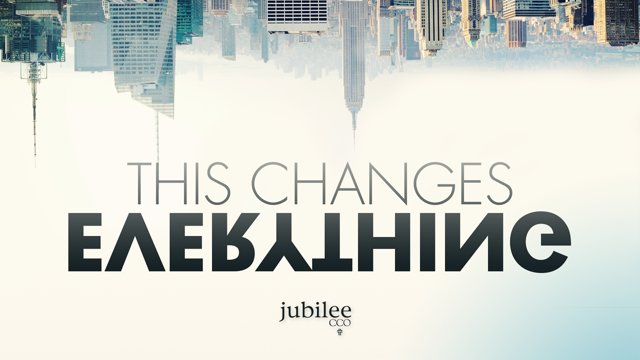 biggest thing we do all year (with 3000+ college students drawn together in Pittsburgh by the
biggest thing we do all year (with 3000+ college students drawn together in Pittsburgh by the 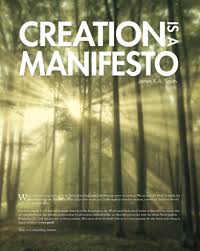 Smith, Skye Jethani, Vincent Bacote and Diane Paddison, a significant book list Beth and I curated, and a bunch of ads from innovative mission and educational organizations. Not to mention descriptions of all the speakers and workshops. It’s really worth seeing. And do notice that book list – good stuff, in several key categories.
Smith, Skye Jethani, Vincent Bacote and Diane Paddison, a significant book list Beth and I curated, and a bunch of ads from innovative mission and educational organizations. Not to mention descriptions of all the speakers and workshops. It’s really worth seeing. And do notice that book list – good stuff, in several key categories.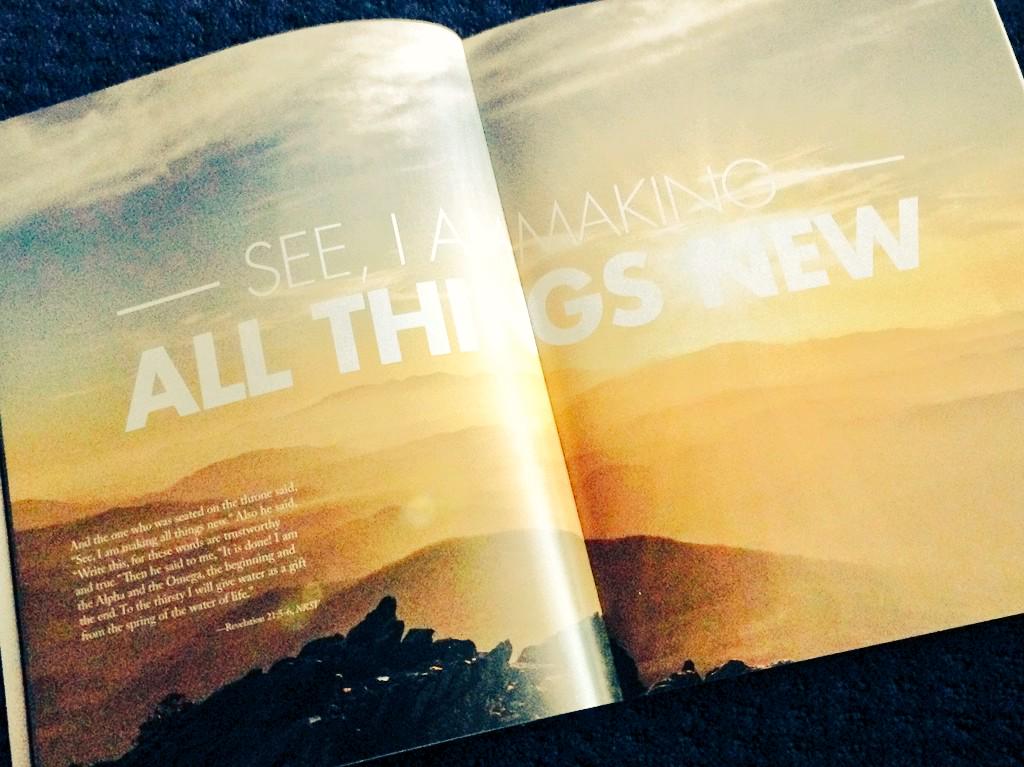
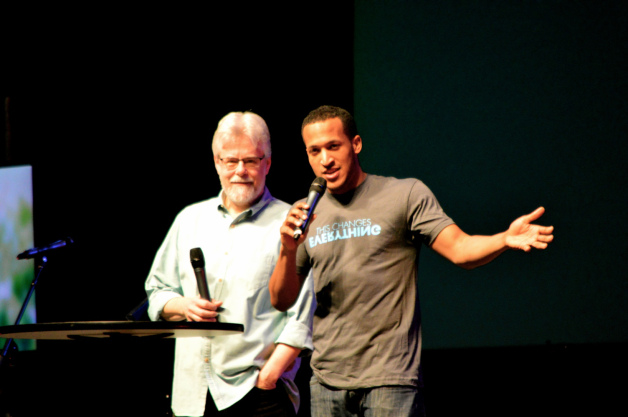

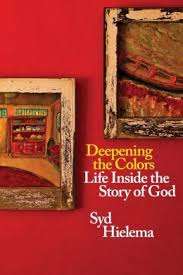 Deepening the Colors: Life Inside the Story of God
Deepening the Colors: Life Inside the Story of God 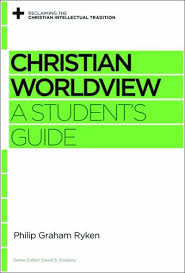 Christian Worldview: A Student’s Guide
Christian Worldview: A Student’s Guide 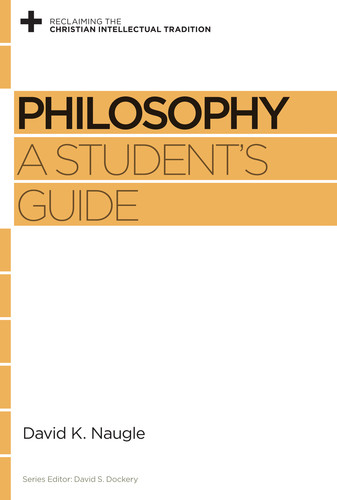 Philosophy: A Student’s Guide
Philosophy: A Student’s Guide 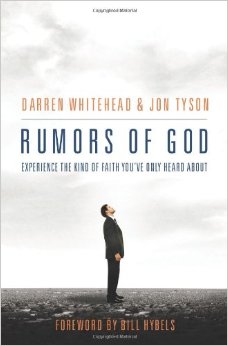 Rumors of God: Experience the Kind of Faith You’ve Only Heard About Jon Tyson & Darren Whitehead (Nelson) $15.99 Between Beth and I we have been to every Jubilee since the founding of the conference in the late 70s and have heard most of the major addresses there. After Tyson’s 2015 Saturday night talk, I exclaimed that this was the best one-time presentation that explains the theological overview of Jubilee in the history of the conference. With his clear-headed, no-nonsense style, it wasn’t, perhaps, the most passionate or the funniest or the most immediately stunning. But, it was exceptionally well received and I think both students and old-timers new this was as historic moment. With tears running down my cheeks I joined others in the holy applause. Faith does relate to all of life, and the lack of a robust vision based on the Biblical scope of Christ’s redemption will continue to haunt us if we don’t grasp these bigger, transforming truths. I’ve been a fan of Tyson and his Trinity Grace church work in New York. His Aussie accent is cool, too. This is his only book, a wonderful overview of Christian faith made real for today. The video of the Jubilee talk will be up at the Jubilee website before too long, I trust, and that content isn’t exactly spelled out simply in this volume. But this is a great, great book, and we were happy to promote it at Jubilee.
Rumors of God: Experience the Kind of Faith You’ve Only Heard About Jon Tyson & Darren Whitehead (Nelson) $15.99 Between Beth and I we have been to every Jubilee since the founding of the conference in the late 70s and have heard most of the major addresses there. After Tyson’s 2015 Saturday night talk, I exclaimed that this was the best one-time presentation that explains the theological overview of Jubilee in the history of the conference. With his clear-headed, no-nonsense style, it wasn’t, perhaps, the most passionate or the funniest or the most immediately stunning. But, it was exceptionally well received and I think both students and old-timers new this was as historic moment. With tears running down my cheeks I joined others in the holy applause. Faith does relate to all of life, and the lack of a robust vision based on the Biblical scope of Christ’s redemption will continue to haunt us if we don’t grasp these bigger, transforming truths. I’ve been a fan of Tyson and his Trinity Grace church work in New York. His Aussie accent is cool, too. This is his only book, a wonderful overview of Christian faith made real for today. The video of the Jubilee talk will be up at the Jubilee website before too long, I trust, and that content isn’t exactly spelled out simply in this volume. But this is a great, great book, and we were happy to promote it at Jubilee. 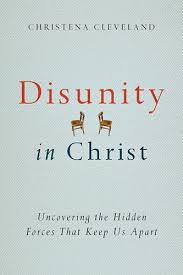 Disunity in Christ: Uncovering the Hidden Forces That Keep Us Apart
Disunity in Christ: Uncovering the Hidden Forces That Keep Us Apart 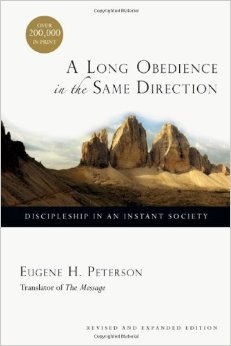 A Long Obedience in the Same Direction: Discipleship in an Instant Society
A Long Obedience in the Same Direction: Discipleship in an Instant Society 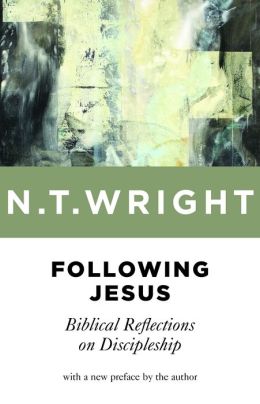 Following Jesus: Biblical Reflections on Discipleship
Following Jesus: Biblical Reflections on Discipleship 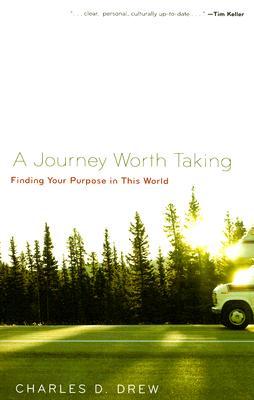 A Journey Worth Taking: Finding Your Purpose in This World
A Journey Worth Taking: Finding Your Purpose in This World 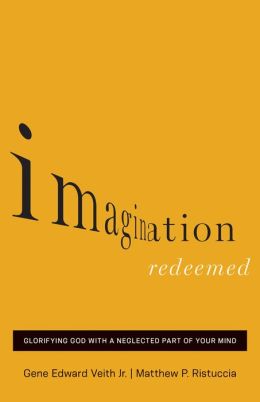 Imagination Redeemed: Glorifying God with a Neglected Part of Your Mind
Imagination Redeemed: Glorifying God with a Neglected Part of Your Mind 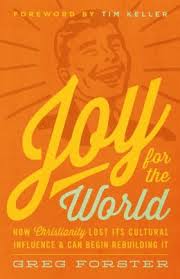 Joy To The World: How Christianity Lost Its Cultural Influence and Can Begin to Rebuild It
Joy To The World: How Christianity Lost Its Cultural Influence and Can Begin to Rebuild It 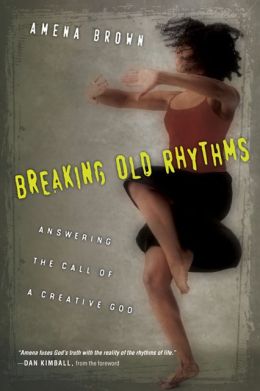 Breaking Old Rhythms: Answering the Call to a Creative God
Breaking Old Rhythms: Answering the Call to a Creative God 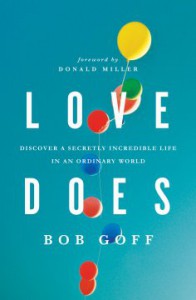 Love Does: Discovering a Secretly Incredible Life in an Ordinary World
Love Does: Discovering a Secretly Incredible Life in an Ordinary World 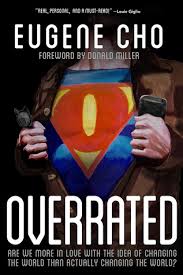 Overrated: Are We More in Love With the Idea of Changing the World Than Actually Changing the World? Eugene
Overrated: Are We More in Love With the Idea of Changing the World Than Actually Changing the World? Eugene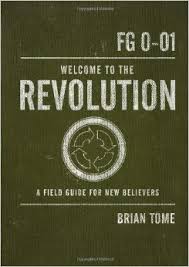 Welcome to the Revolution: A Field Guide for New Believers
Welcome to the Revolution: A Field Guide for New Believers 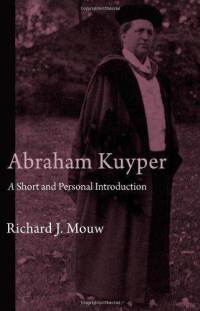 Abraham Kuyper: A Short and Personal Introduction
Abraham Kuyper: A Short and Personal Introduction 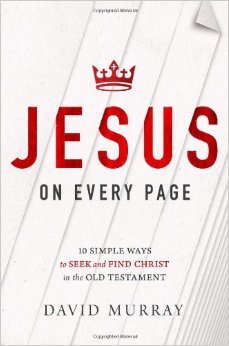 Jesus on Every Page: 10 Simple Ways to Seek and Find Christ in the Old Testament
Jesus on Every Page: 10 Simple Ways to Seek and Find Christ in the Old Testament 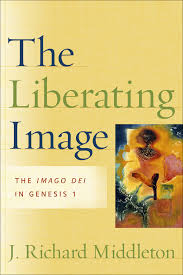 The Liberating Image: The Imago Dei in Genesis 1
The Liberating Image: The Imago Dei in Genesis 1 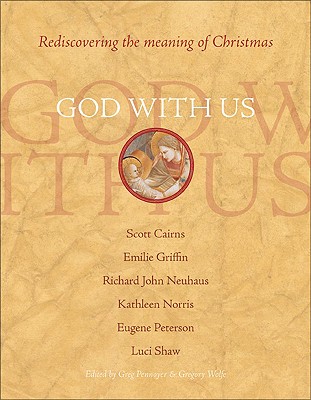 and it became our biggest selling item during Advent. We have raved each year about the very handsome, artful, mature volume, and said important about it was that it “emerged from the mature writing in the pages of our best literary journal, Image, a sophisticated, faith-based quarterly of literature and art and criticism; Pennoyer & Wolfe are extraordinary thinkers and writers themselves, and have put together what is without a doubt one of the most glorious books you could own. (Except, perhaps for the long-awaiting, luxurious sequel, God For Us: Rediscovering the Meaning of Lent and Easter which Paraclete released this past Spring…”
and it became our biggest selling item during Advent. We have raved each year about the very handsome, artful, mature volume, and said important about it was that it “emerged from the mature writing in the pages of our best literary journal, Image, a sophisticated, faith-based quarterly of literature and art and criticism; Pennoyer & Wolfe are extraordinary thinkers and writers themselves, and have put together what is without a doubt one of the most glorious books you could own. (Except, perhaps for the long-awaiting, luxurious sequel, God For Us: Rediscovering the Meaning of Lent and Easter which Paraclete released this past Spring…”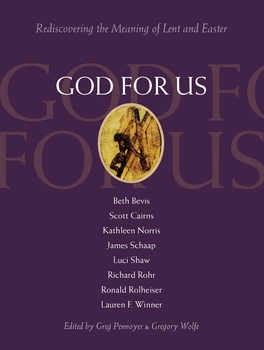
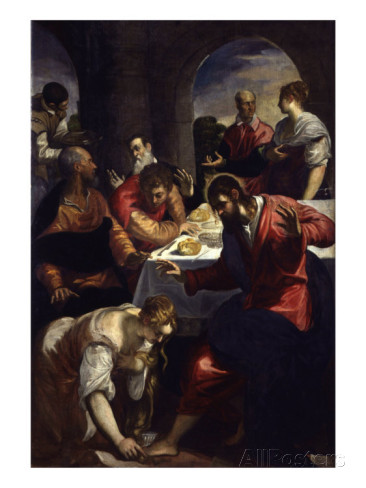 marker, includes very nice short pieces on the history of various customs and Feast Days within the time of Lent. Beth Bevis offers more than a dozen of these extra one page ruminations that are delightful and inspiring, perhaps especially for those of us not accustomed to thinking much about Shrove Tuesday, the Annunciation, Maundy Thursday or Holy Saturday.
marker, includes very nice short pieces on the history of various customs and Feast Days within the time of Lent. Beth Bevis offers more than a dozen of these extra one page ruminations that are delightful and inspiring, perhaps especially for those of us not accustomed to thinking much about Shrove Tuesday, the Annunciation, Maundy Thursday or Holy Saturday. book.
book.